 Sign in
Sign inEducation
EdSurge Podcast
A weekly podcast about the future of learning. Join host Jeff Young and other EdSurge reporters as they sit down with educators, innovators and scholars for frank and in-depth conversations.

How Harvard Is Trying to Update the Extension School for the MOOC Age
You could call extension schools the original MOOCs. Universities first opened these offshoots more than 100 years ago, and at the time they were innovative—throwing open the campus gates by offering night classes without any admission requirements.
Extension Schools were the original attempt by higher education to offer a low-cost version for the non-elite. Thanks to a recent push towards online courses, Harvard University’s Extension School now has more students than the rest of Harvard combined. Well, unless you count the students in MOOCs, those free online courses, which are offered through a different division of the university. Let’s face it, the number of different types of degrees you could get from Harvard is getting confusing, and the same could be said for many other universities as well.
EdSurge recently sat down with the dean of Harvard’s Extension School, Hunt Lambert, to ask him to sort through all these offerings and give his vision of where his school is headed.
24:2503/05/2018
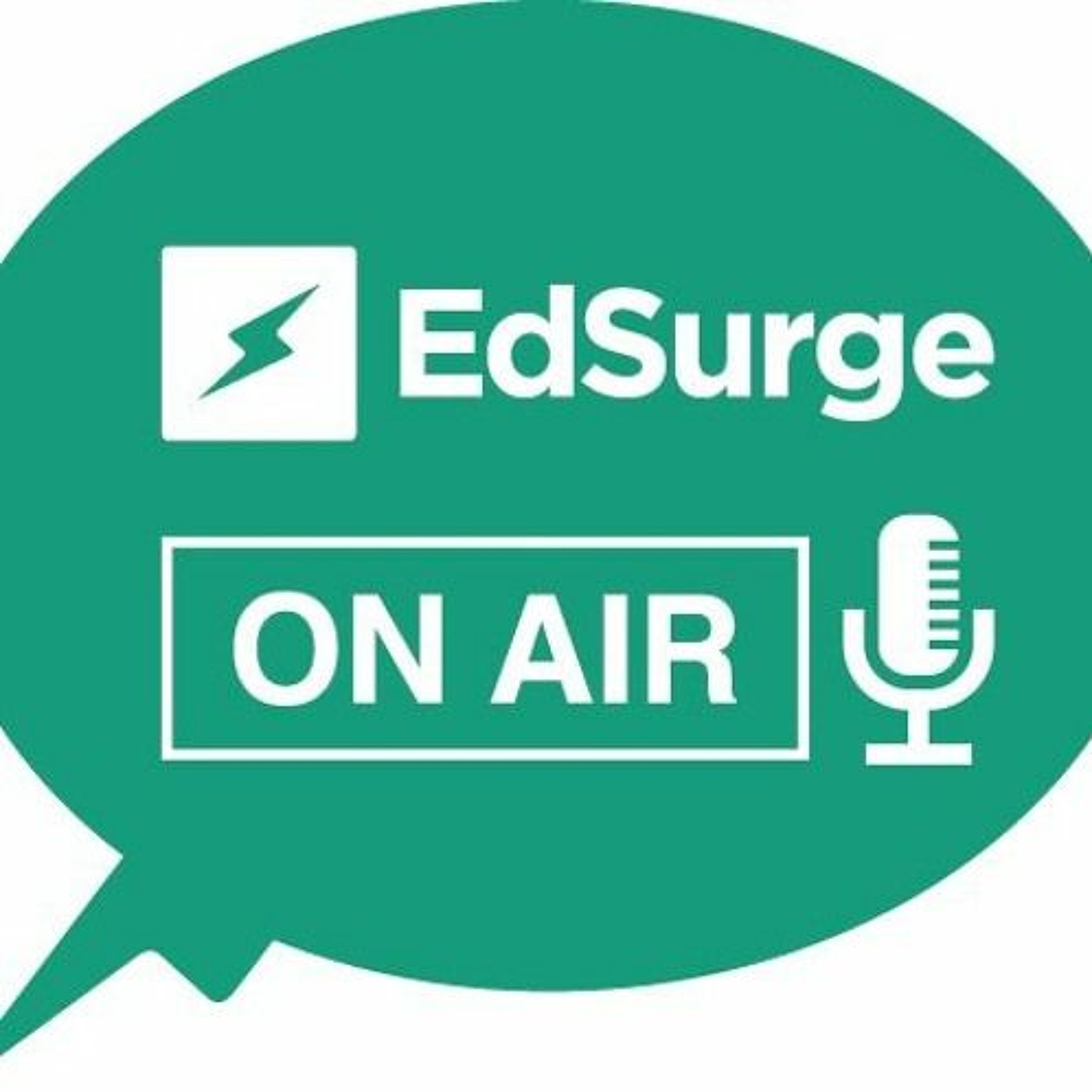
Why Competency-Based Education Stalled (But Isn’t Finished)
The phrase competency-based education is quite a mouthful, but it was all the rage a few years ago among college leaders looking to expand access to their programs. The idea can sound radical, since it often involves doing away with courses as we know them, to focus on having students prove they can master a series of skills or concepts one at a time.
It’s safe to say that competency-based education hasn’t caught on as widely as its promoters hoped, and these days you don’t hear that much about it. In part that’s because some serious questions have been raised about the model.
So what’s up with CBE, as it’s known? To try to find out, we talked with one of the pioneers of bringing the approach to a traditional university, Paul LeBlanc, president of Southern New Hampshire University, which a few years ago started a competency-based program called College for America. And LeBlanc has helped shape policy around CBE on a national level as well. In 2015 he spent a few months on leave from Southern New Hampshire to advise the U.S. Department of Education.
He has some surprising things to say about competency-based education, including that he’s learned not to call it that with students. He talked about how he does explain it, and where he thinks the trend is going.
27:3001/05/2018
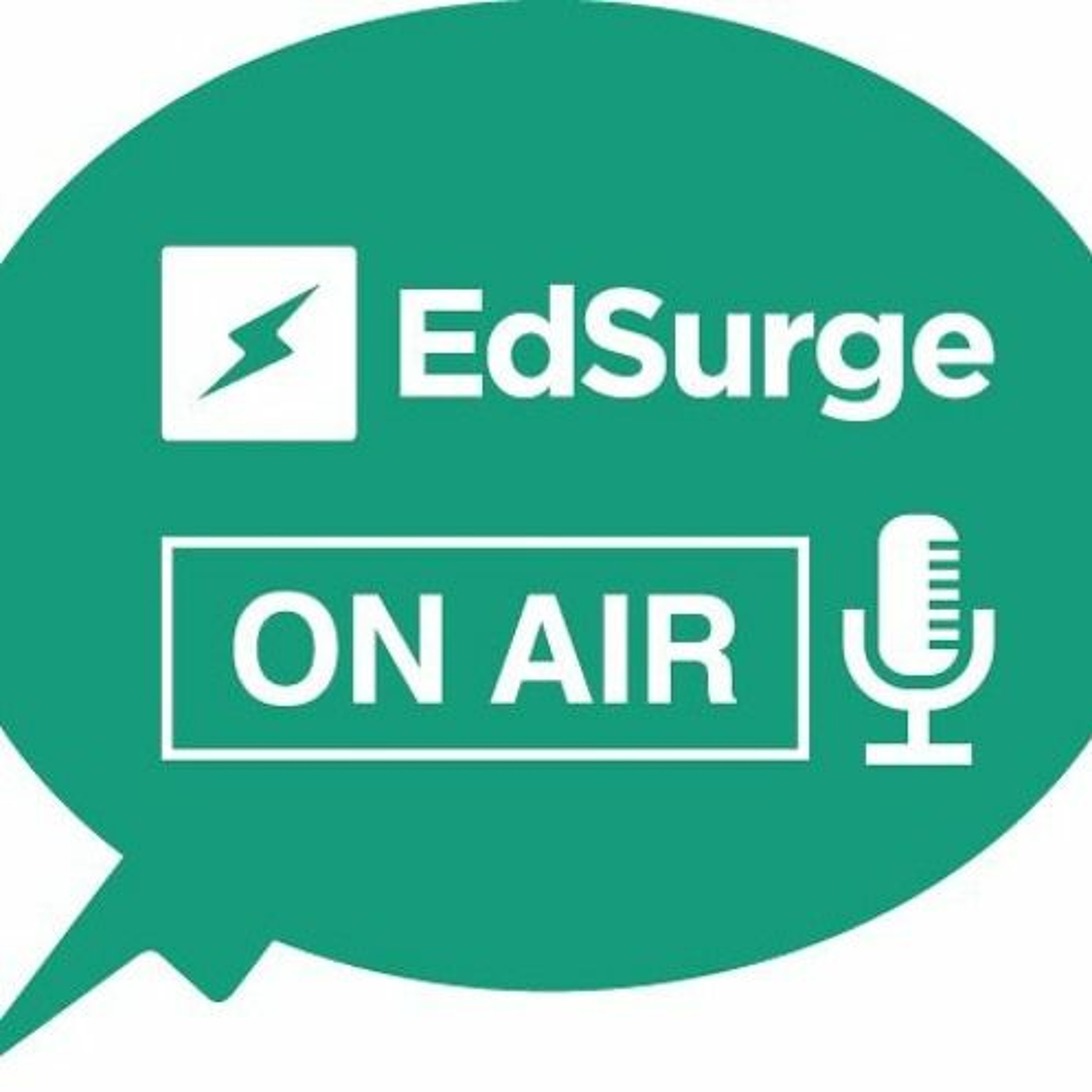
How Facebook Can Improve Privacy By Talking More With Academics
Jennifer Golbeck, a professor at the University of Maryland's College of Information Studies, has been talking about the privacy risks of Facebook data for years. As the recent scandal involving the massive amount of Facebook data leaked to the political advertising company Cambridge Analytica has raised awareness of the issues—and brought calls for change. Golbeck has plenty of suggestions for the social media giant, and she hopes the company will turn more often to researchers and privacy experts to advise them on how to better protect users.
22:4124/04/2018
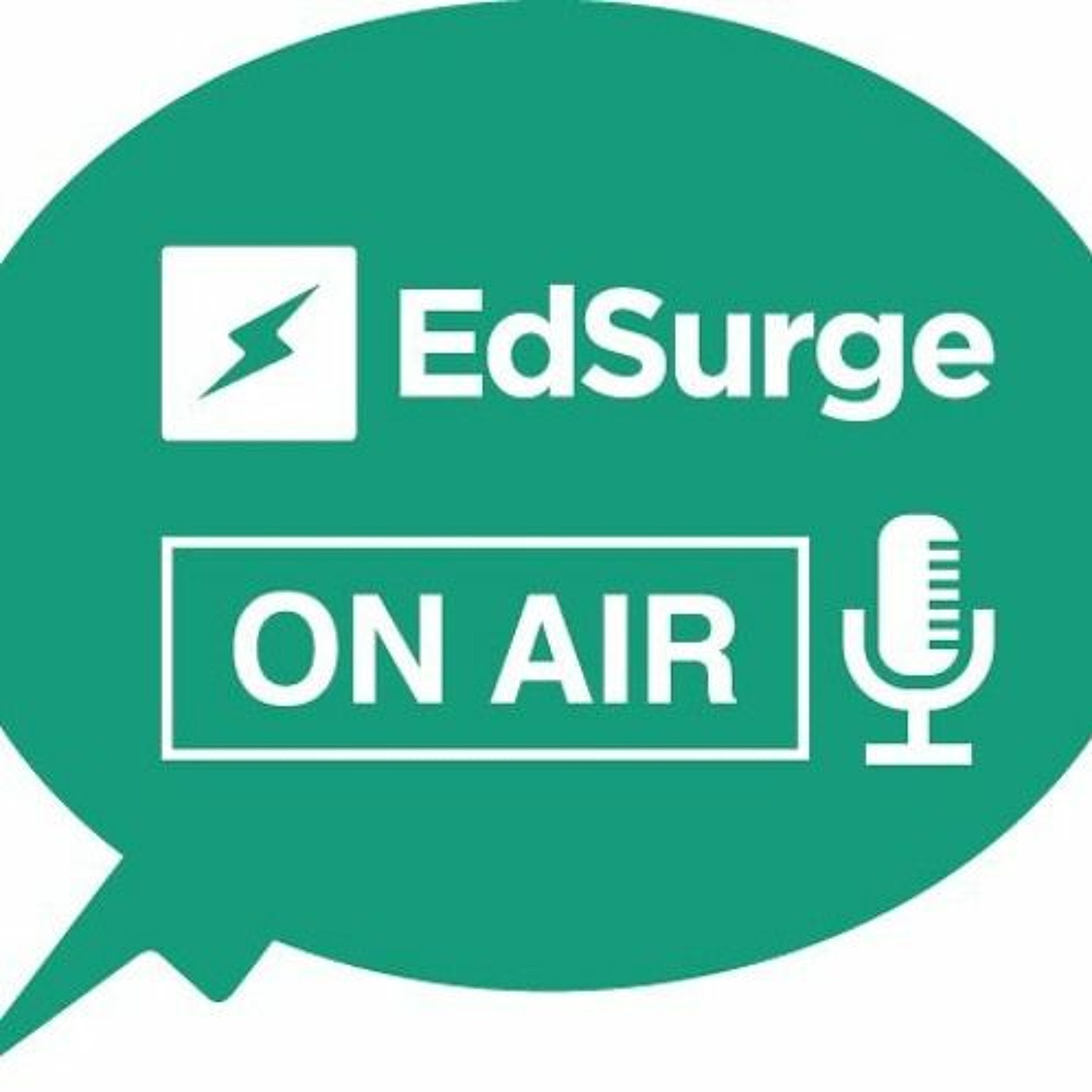
Angela Duckworth Says Grit Is Not Enough
Angela Duckworth’s research on encouraging “grit” in students has been hailed as groundbreaking, popularized in bestselling books and TED talks. It has also been called racist, and some have criticized the work for essentially blaming students for their circumstances.
Duckworth has faced the backlash by practicing a bit of grit herself. Take her reaction when a PhD candidate emailed her explaining that he was doing his dissertation about how the grit narrative ignored systemic barriers that may keep some students from persisting, no matter their character. She offered to serve on the student’s dissertation committee, to gain a deeper understanding of his criticisms.
EdSurge sat down with Duckworth this week just after her keynote at the ASU+GSV Summit in San Diego, to talk about her work and what’s next for the nonprofit she created to translate her research into advice for teachers.
13:3820/04/2018
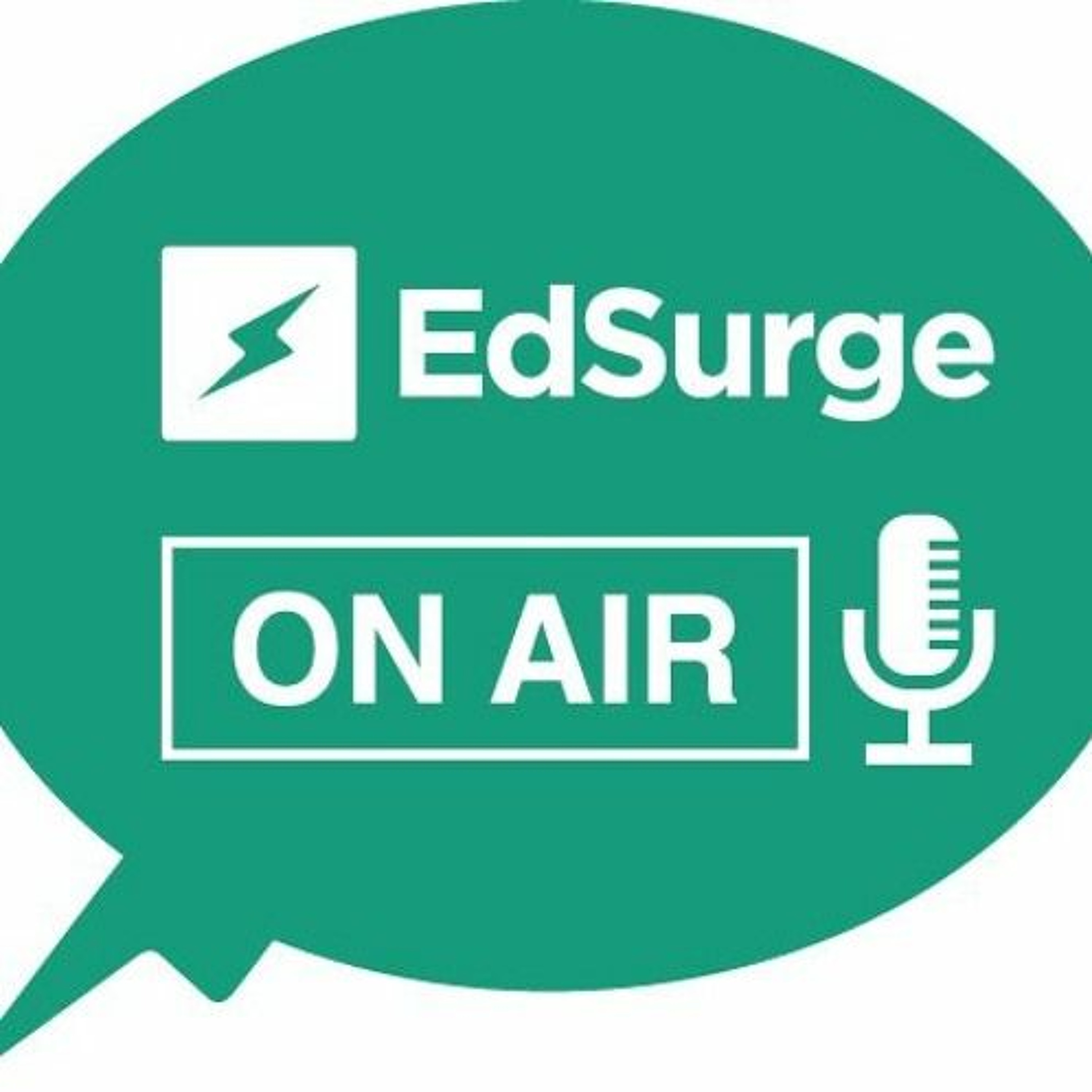
Why Demographic Changes Mean Tough Challenges Ahead for College Leaders
The financial crisis of 2008 was tough for the country, but the real impact will hit colleges in the year 2026.
It turns out the fiscal anxieties coincided with a dramatic birth dearth—a reduction in the number of children born, which means that the number of kids hitting traditional college age will drop almost 15 percent around 2026. That could amount to a crisis for colleges, unless they start planning now.
That’s the argument of Nathan Grawe, an economics professor at Carleton College. He’s author of a new book with a very straightforward title: Demographics and the Demand for Higher Education. EdSurge recently sat down with Grawe, who described how this slow-moving storm raises existential questions for higher education.
22:1617/04/2018
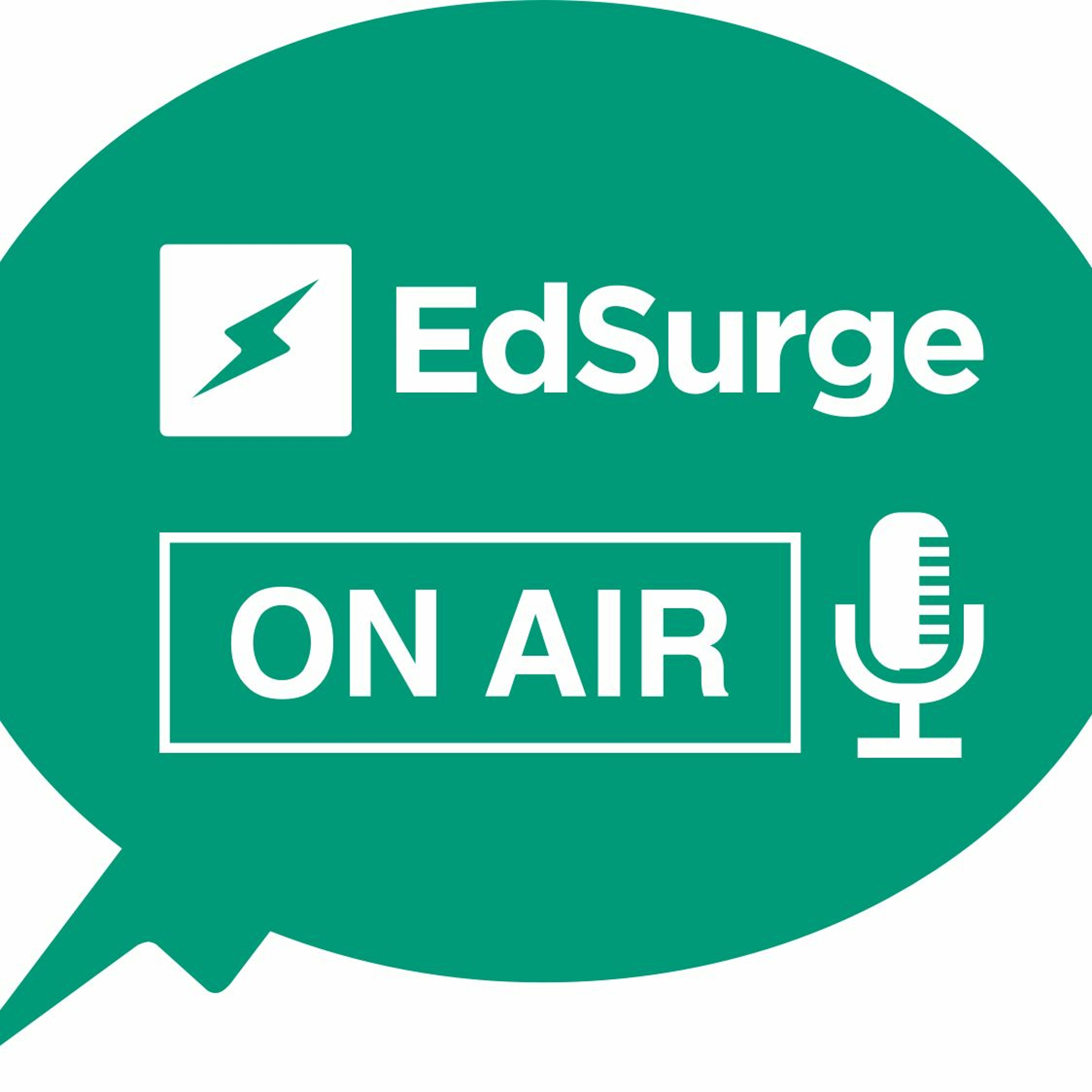
Social-Emotional Learning May Be A Limited Solution for Reforming School Discipline
The United States Government Accountability Office recently released a report confirming decades of anecdotal research saying, among other things, that Black male students who account for 15.5 percent of all public school kids, represented about 39 percent of students suspended from school. That is an overrepresentation of about 23 percentage points. This report also found that students with disabilities were disproportionately disciplined in public schools.
To change this trend, some educators are looking to implement social-emotional learning (SEL) practices such as restorative justice—where students repair harm done with community service or discussions—and daily greetings, where teachers build relationships with students by addressing them each morning.
But researchers following school districts who have implemented such practices, note that SEL practices hold “limited promise” for changing trends in school discipline because notions inherent in much of the pedagogy don’t consider power, privilege and cultural differences.
To discuss his research on this topic, Edward Fergus, an assistant professor at Temple University, joined reporter Jenny Abamu on the EdSurge OnAir podcast.
28:0110/04/2018
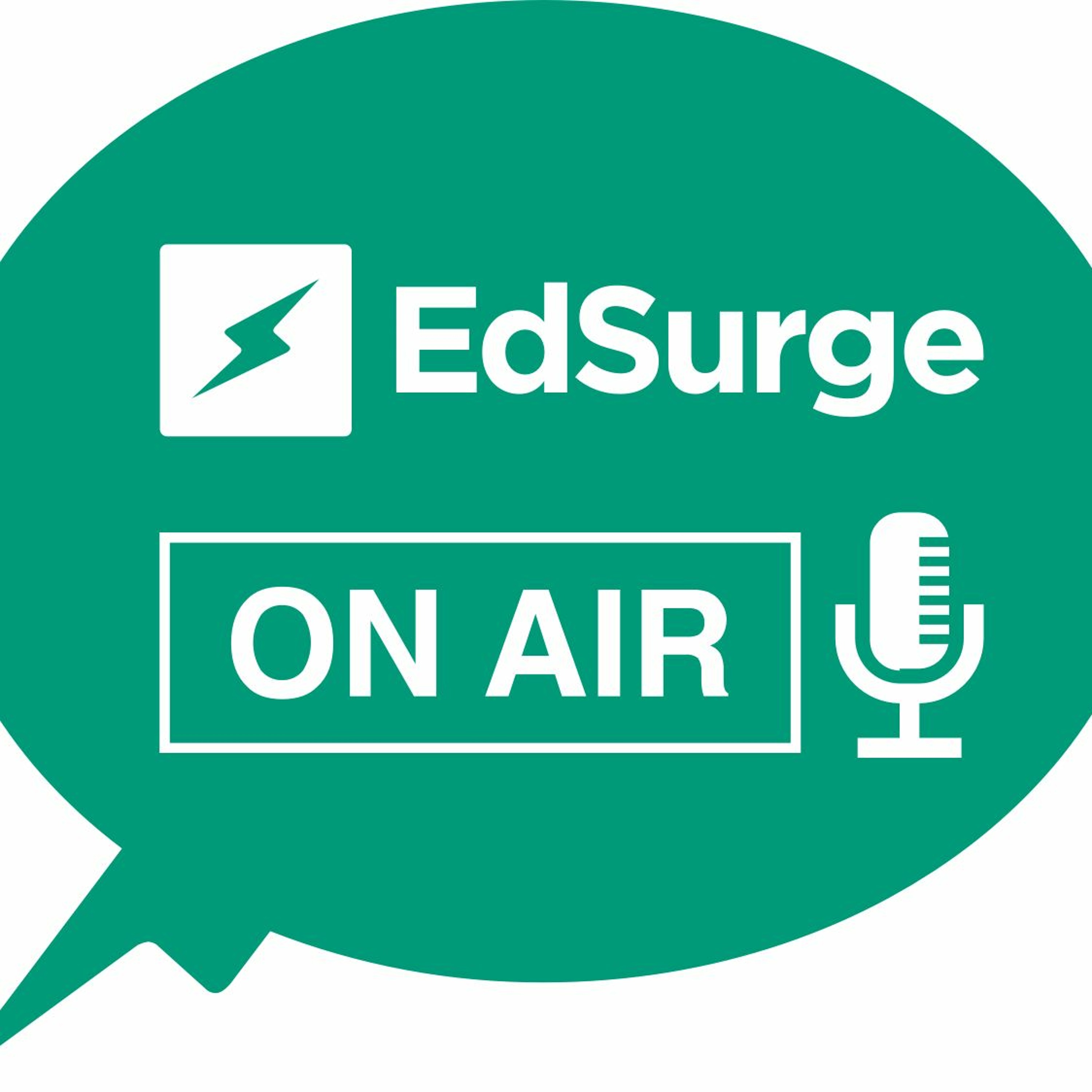
Computer Science Degrees and Technology’s Boom-and-Bust Cycle
In higher education, the number of computer science bachelor’s degrees follows boom-and-bust market trends in finance and technology—growing when times are good and plummeting when economies crash. And since 2010, computer science majors have again been on the incline, after a major drop off following the Dot-com bubble burst. But what have we learned from these patterns? And what can it tell us about the future?
Mehran Sahami, professor and associate chair for education in the computer science department at Stanford University, has witnessed and tracked these patterns closely. He offers insights about the past and what students and educators interested in CS should consider going forward.
https://www.edsurge.com/news/2018-04-02-computer-science-degrees-and-technology-s-boom-and-bust-cycle
15:5803/04/2018
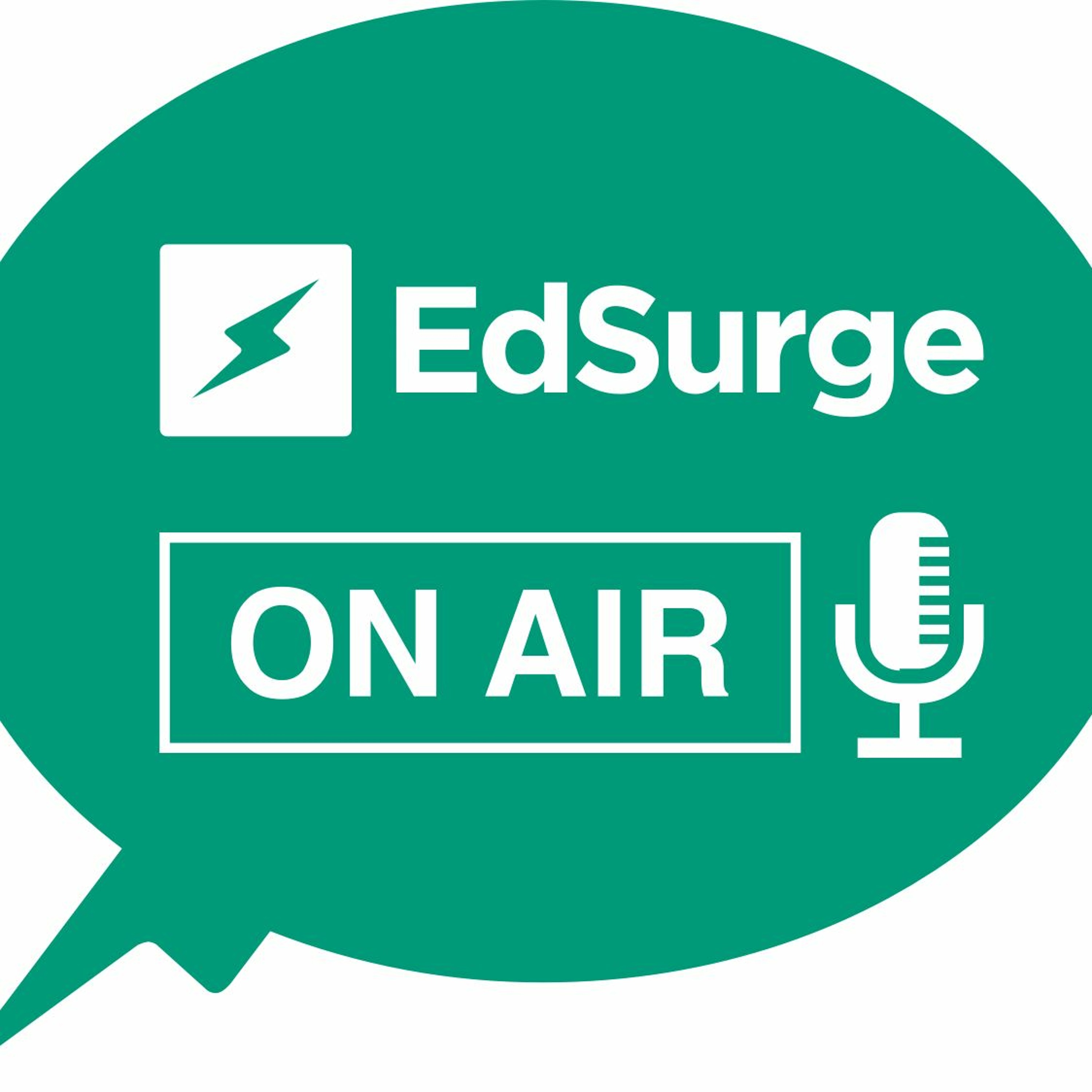
Unpacking Why Some Educators See the Word ‘Equity’ As a Threat
How do you close achievement gaps when all your students don’t start with the same opportunities? It’s a question of equity, a goal that is generally assumed to be one most educators want to achieve. Yet, these days the issue seems more complicated, as political debates frame equity policies as in conflict with ideals of fairness and tradition.
Last month at the Aspen Institute’s States Leading for Equity event, North Dakota’s Superintendent of Public Instruction, Kirsten Baesler, noted that in her community, this question of providing equal opportunities for all through schooling could be divisive. “There is a threat certain people, certain organizations, and certain communities feel when you start to talk about equity,” she said.
This week on the EdSurge OnAir podcast, Baesler unpacks why some in her community feel threatened by the word, and she describes the challenges school leaders face in implementing reforms to promote equity in their communities.
https://www.edsurge.com/news/2018-03-27-is-equity-threatening-might-be-time-your-district-had-a-conversation
20:0027/03/2018
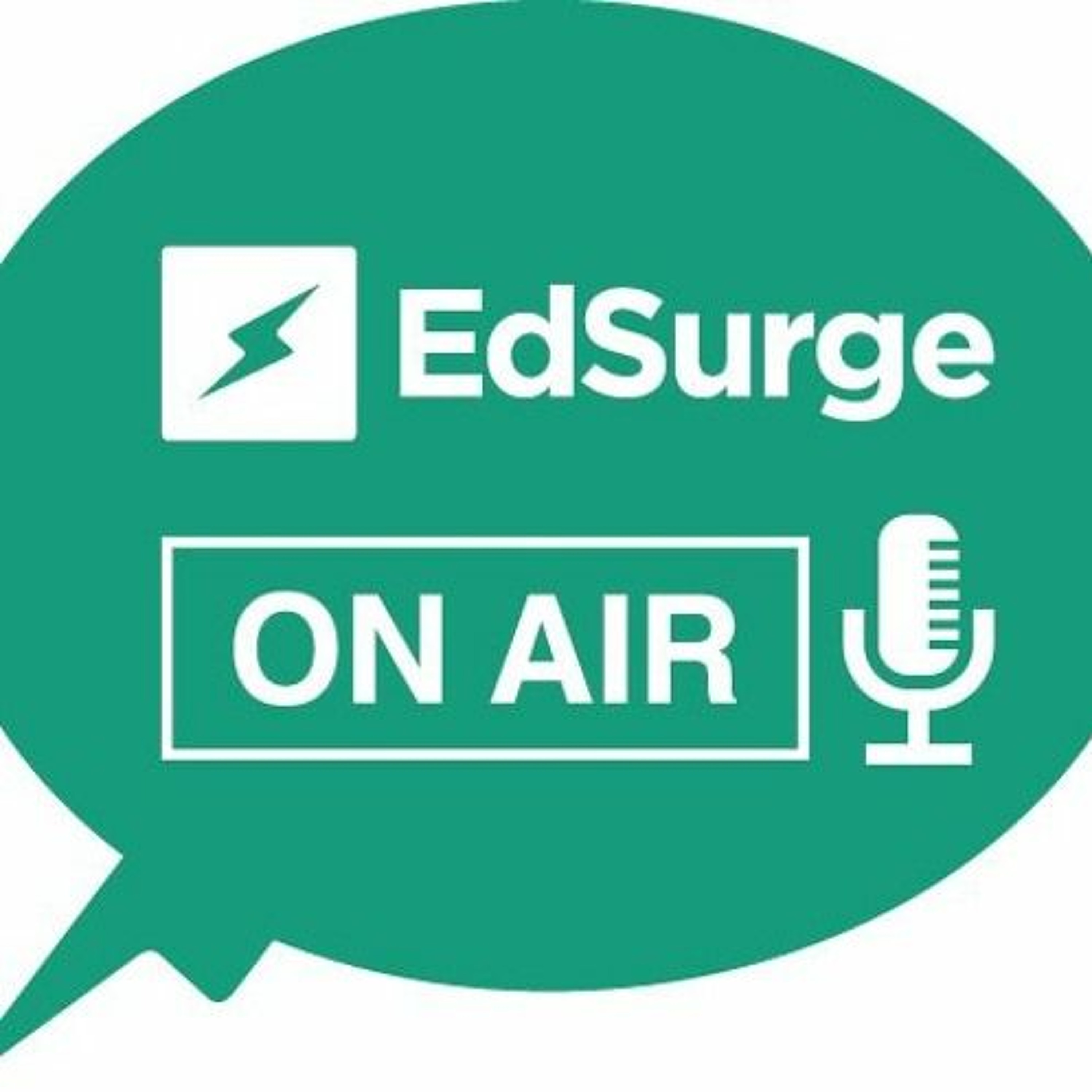
VR Could Bring a New Era of Immersive Learning
Some educators tout the immersive power of VR technology, pointing to examples like an app that simulates what it was like to walk on either side of Germany’s Berlin Wall in the 1980s.
But what does it mean to teach in an immersive format? What can this technology do that couldn't be done before? And how might it change a professor's approach to teaching, or should it?
This month we sat down with two guests—Maya Georgieva, director of digital learning at The New School in New York City, and Rob Kadel, assistant director of research at Georgia Tech Center for 21st Century Universities—for a live video townhall, streamed from the SXSW EDU conference in Austin. It was part of our video town hall series called EdSurge LIVE. More than 100 people tuned in, with questions such as how to make VR accessible for students with disabilities and how to avoid motion sickness when using the technology.
29:3820/03/2018
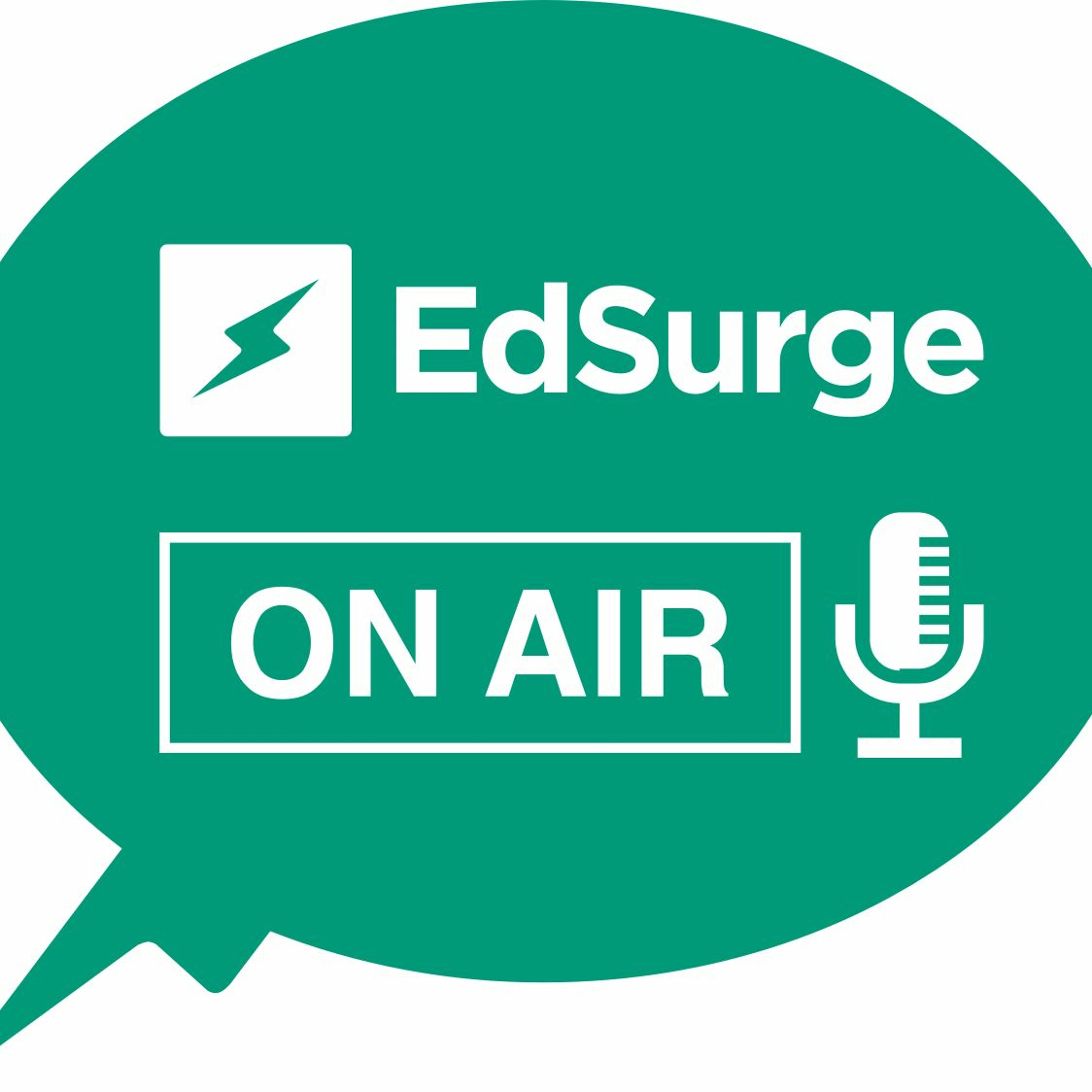
What Schools Could Be—and What Education Investors Get Wrong
Does this sound familiar? An Ivy League-educated philanthropist, who built his wealth from a career in technology, decides to champion education as his next cause—under the belief that today’s schools are not adequately preparing the next generation for the future.
We’re not talking about Bill Gates or Mark Zuckerberg. Rather, meet Ted Dintersmith, who has spent nearly 20 years as a partner at Charles River Ventures, an early-stage investment firm. These days, he’s no longer spending time in company boardrooms, but rather in schools and classrooms.
34:2613/03/2018
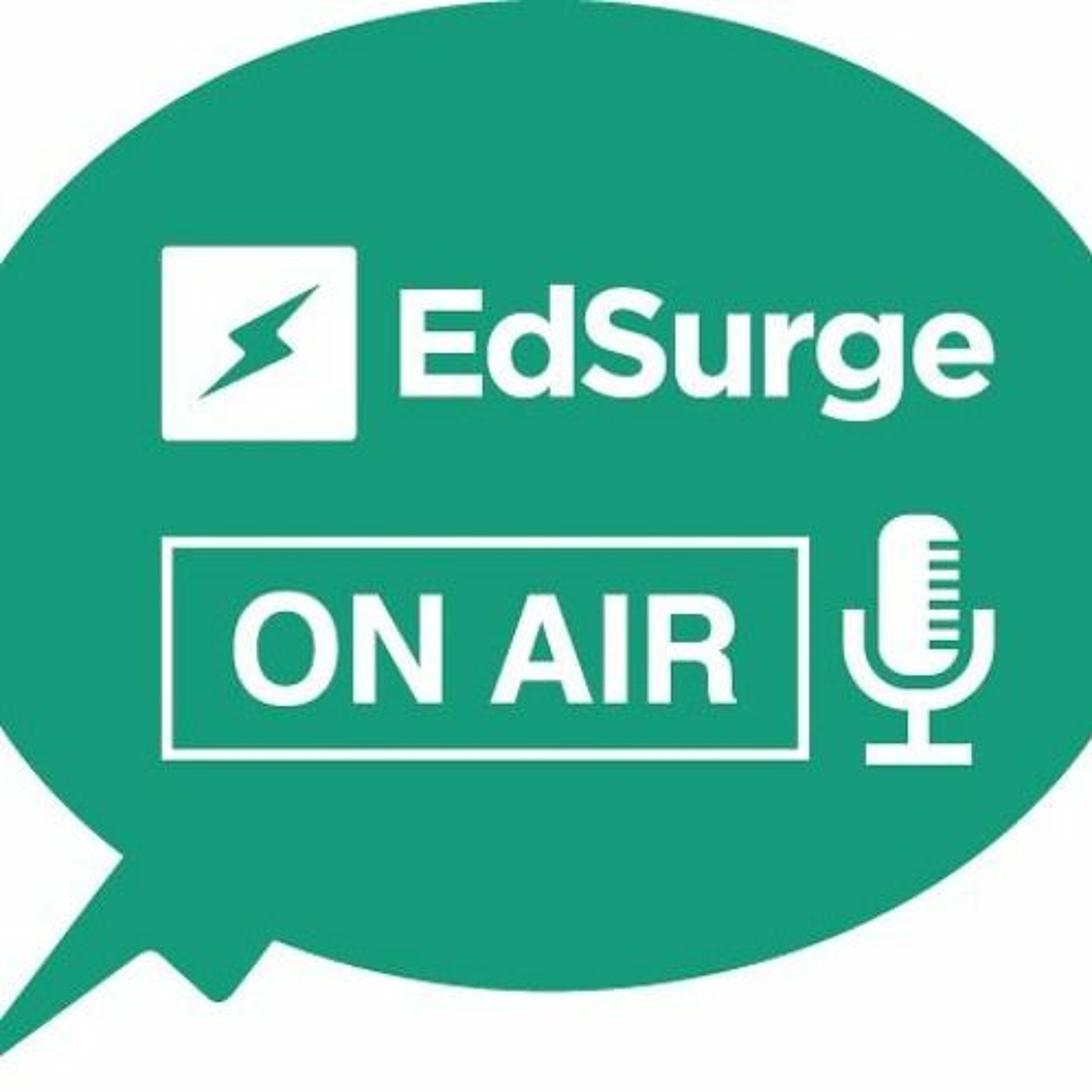
Why Professors Doubt Education Research
Lauren Herckis, an anthropologist and research faculty at Carnegie Mellon University, has been exploring the culture of teaching at colleges and what makes professors try new teaching practices or, in some cases, resist them.
21:4506/03/2018
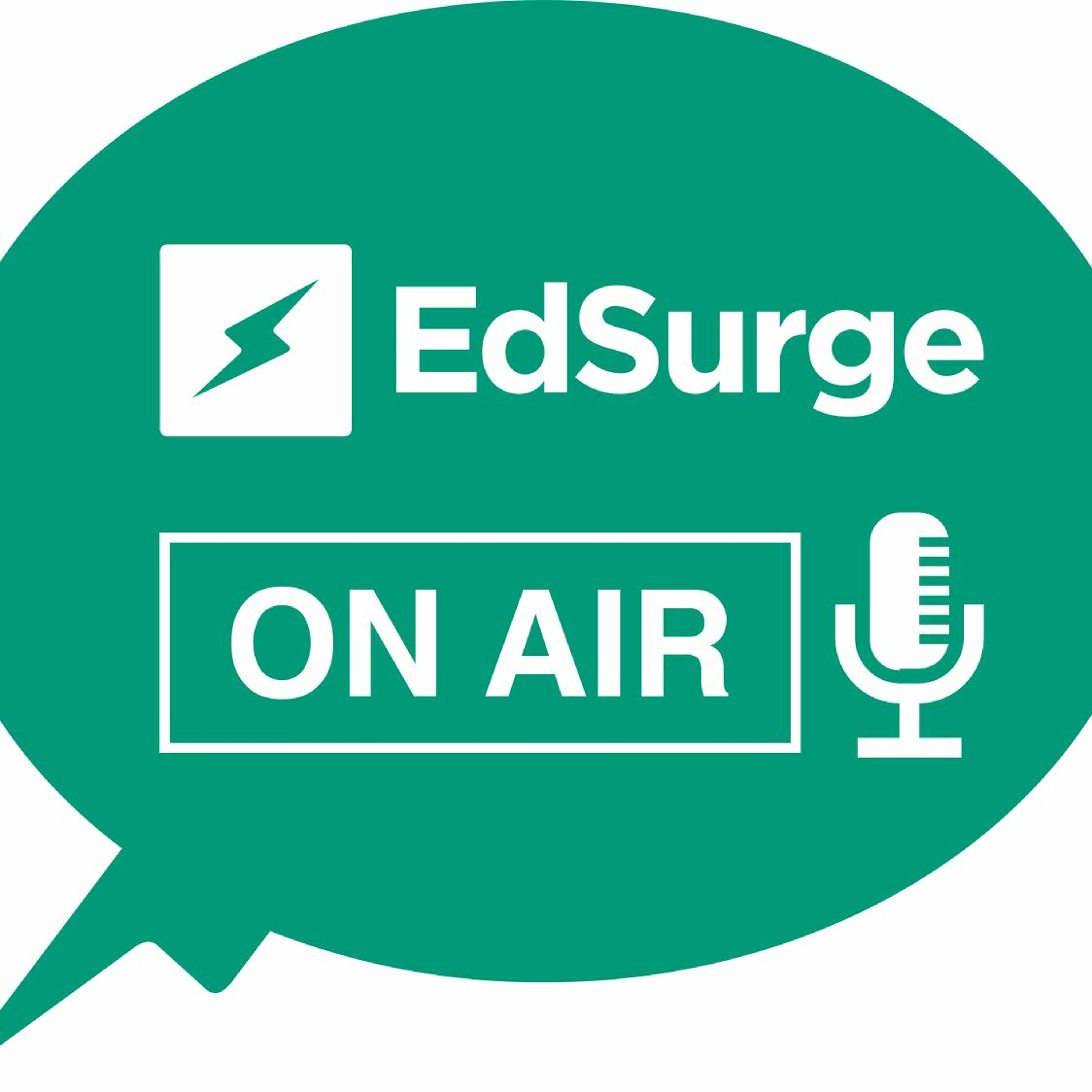
'A Deal With the Devil': NPR Reporter Anya Kamenetz On Teaching With 'Addictive Tech' Like Facebook
What does it mean to report on education technology from a student lens? How does the tech-health discussion impact teachers in the classroom? What are virtual school lobbyists doing to impact the national discussion on school choice and accountability?
NPR reporter Anya Kamenetz, joins the EdSurge OnAir Podcast to discuss her new book, “The Art of Screentime: How Your Family Can Balance Digital Media and Real Life,” and offer listeners some answers to challenging questions about the ever-evolving education technology landscape.
23:3227/02/2018
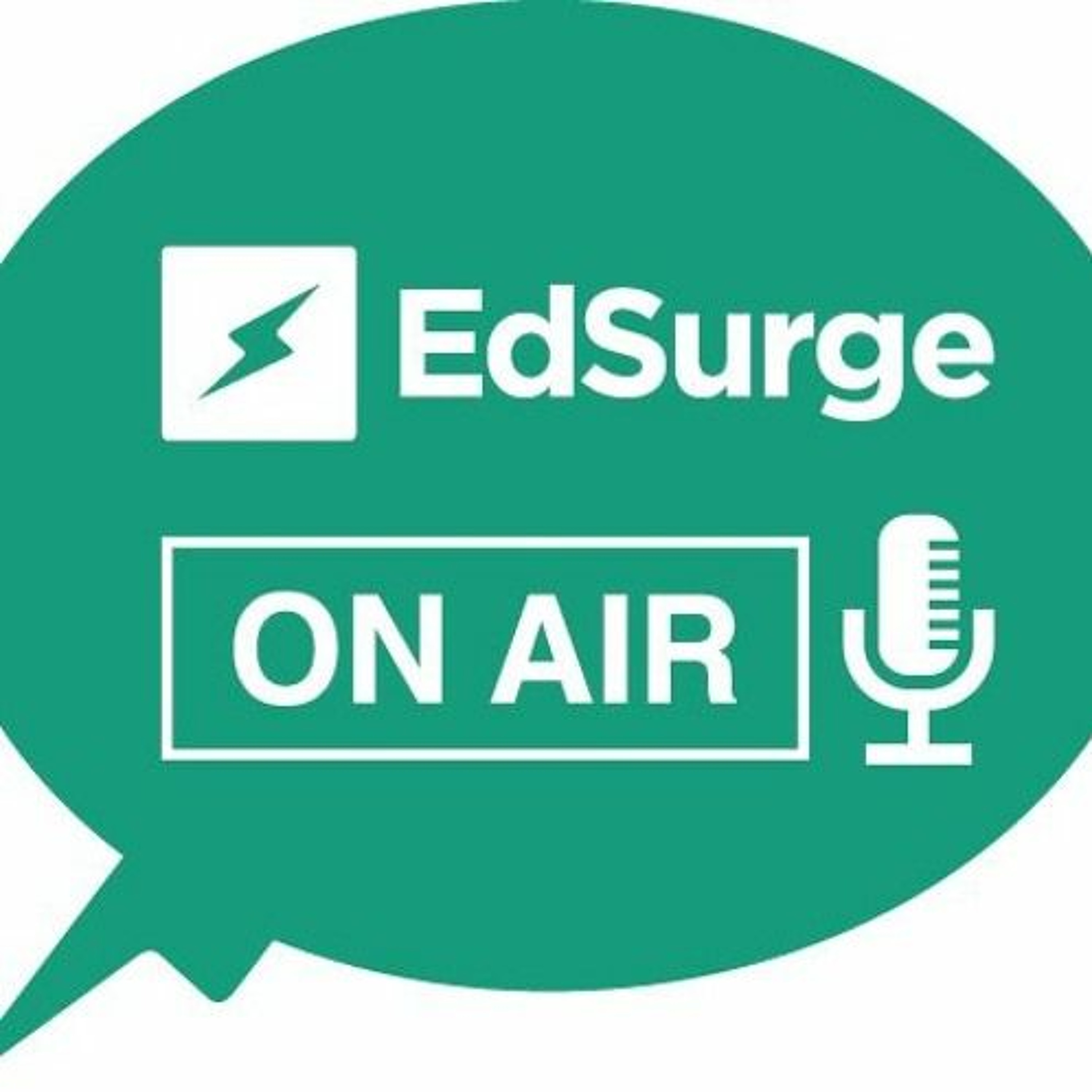
The Rise of ‘Outsider Education’
In higher ed people often look to a few elite schools for big new ideas. But that might be changing. These days innovation seems just as likely to come from a state school, a small liberal arts college, or even some upstart from outside the traditional system.
That’s the argument made by Bernard Bull, vice provost for curriculum and academic innovation at Concordia University Wisconsin. He’s also a blogger, and he runs a podcast of his own, called MoonshotEDU. He’s optimistic about what he sees as a greater diversity of models and teaching practices at colleges and universities. But he’s also concerned about other pressures he sees in edtech, that are pushing toward standardization as colleges experiment with big data and algorithms.
EdSurge recently sat down with Bull after his keynote at the Educause Learning Initiative’s annual conference in New Orleans. We talked about what he sees as the most important new edtech trends and why it’s still important to read tech critics.
20:4020/02/2018

‘Marvel-ous Makers’ Bring Black Panther-Inspired Creations to the Classroom
Social media feeds are lighting up with hashtags such as #WhatBlackPantherMeansToMe and #BlackPantherLive celebrating the release of a Hollywood adaptation of the groundbreaking comic series, Black Panther.
Educators are also getting into the fandom, seizing on opportunities the film creates to teach students about empowerment, culture and even the importance of learning science and engineering.
Netia McCray, is one of the educators using the Black Panther film as an educational opportunity. She is the founder of a non-profit called Mbadika, which means 'Ideas' in Kimbundu, a language spoken in the northern region of Angola. EdSurge talked with McCray about her new YouTube series where she's working with makers to teach students how to use design software and 3D printers to recreate artifacts from the Black Panther film.
McCray also addressed the significance of showcasing this film during Black History Month, why the main actor chose to use an african accent and how a fictional film like this can have real implications on the empowerment of black women in STEM.
16:1313/02/2018

Podcast Extra: Overcoming Barriers to STEM Education
How do we crack a problem that has existed for decades? Jobs in science, technology, engineering & mathematics (STEM) jobs are projected to grow 17 percent between 2014 and 2024; non-STEM jobs are expected to rise only 12 percent. Even so, minorities, women and people with disabilities are still severely underrepresented in STEM-related fields. And if innovation springs from looking at problems from a very different perspective, then coaxing people who bring diverse perspectives should become a national imperative.
As part of Silicon Valley’s Commonwealth Club discussion series, EdSurge CEO and co-founder Betsy Corcoran spoke with three MacArthur Fellows actively involved in helping people from underrepresented populations enter and thrive in STEM careers. Deborah Bial, founder of the Posse Foundation, Jim Fruchterman, founder of Benetech and Dr. Manu Prakash, a physical biologist from Stanford University, bring powerful—and different—perspectives on how to over barriers so many confront when pursuing careers in STEM.
01:05:2809/02/2018
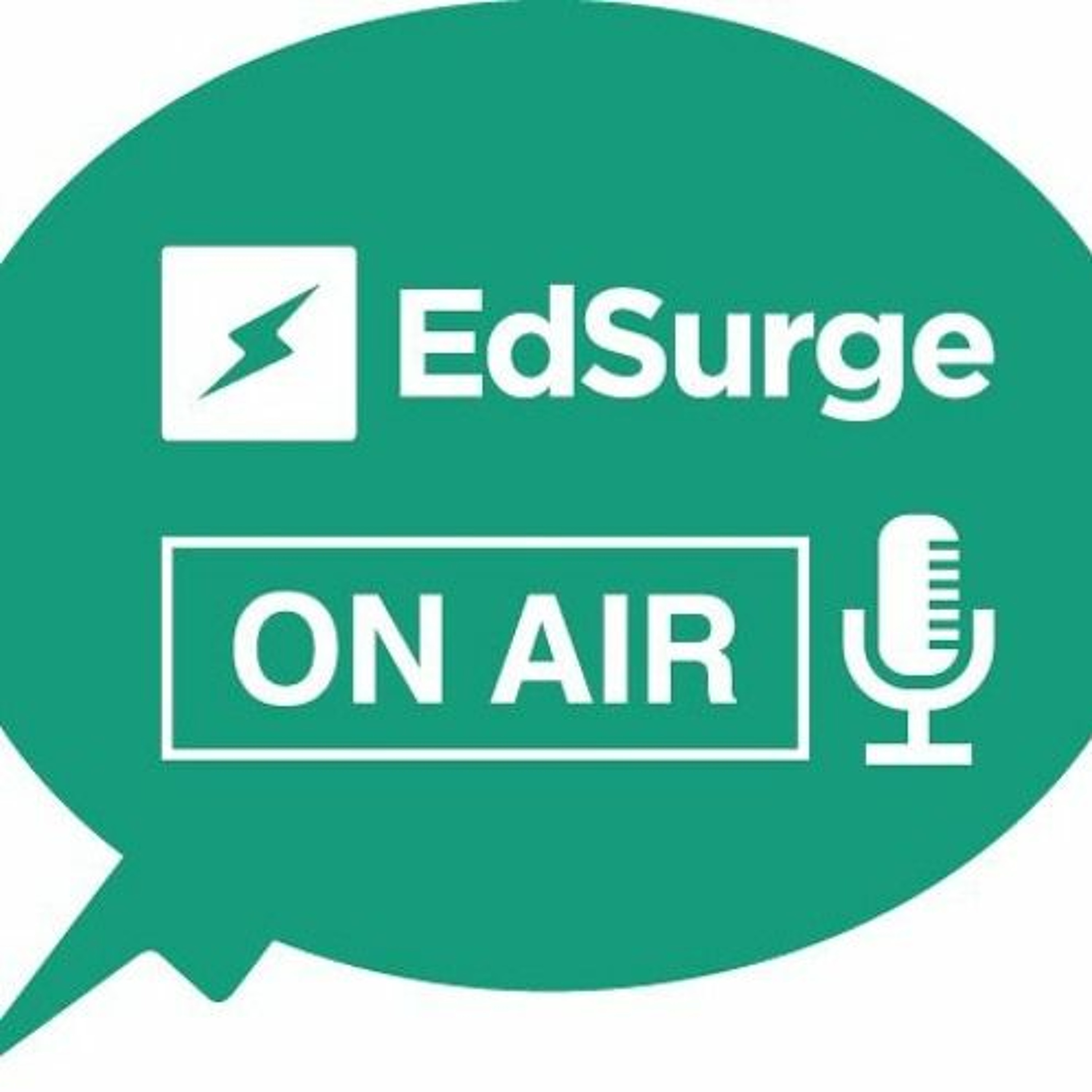
The Challenges Of Teaching In The Trump Era
College professors don’t often talk to each other about the intricacies of their teaching practices, and it often seems a mystery to scholars what goes on in other people’s courses.
Bonni Stachowiak has created a forum to spread those stories and techniques with her long-running podcast, Teaching in Higher Ed. Stachowiak says she is still growing as a teacher herself, as director of teaching excellence and digital pedagogy at Vanguard University of Southern California, and her sense of curiosity comes through in her weekly conversations.
EdSurge talked with Stachowiak about the biggest lessons she’s learned about teaching from those interviews, and the challenges of teaching in today’s highly partisan political environment.
24:1506/02/2018
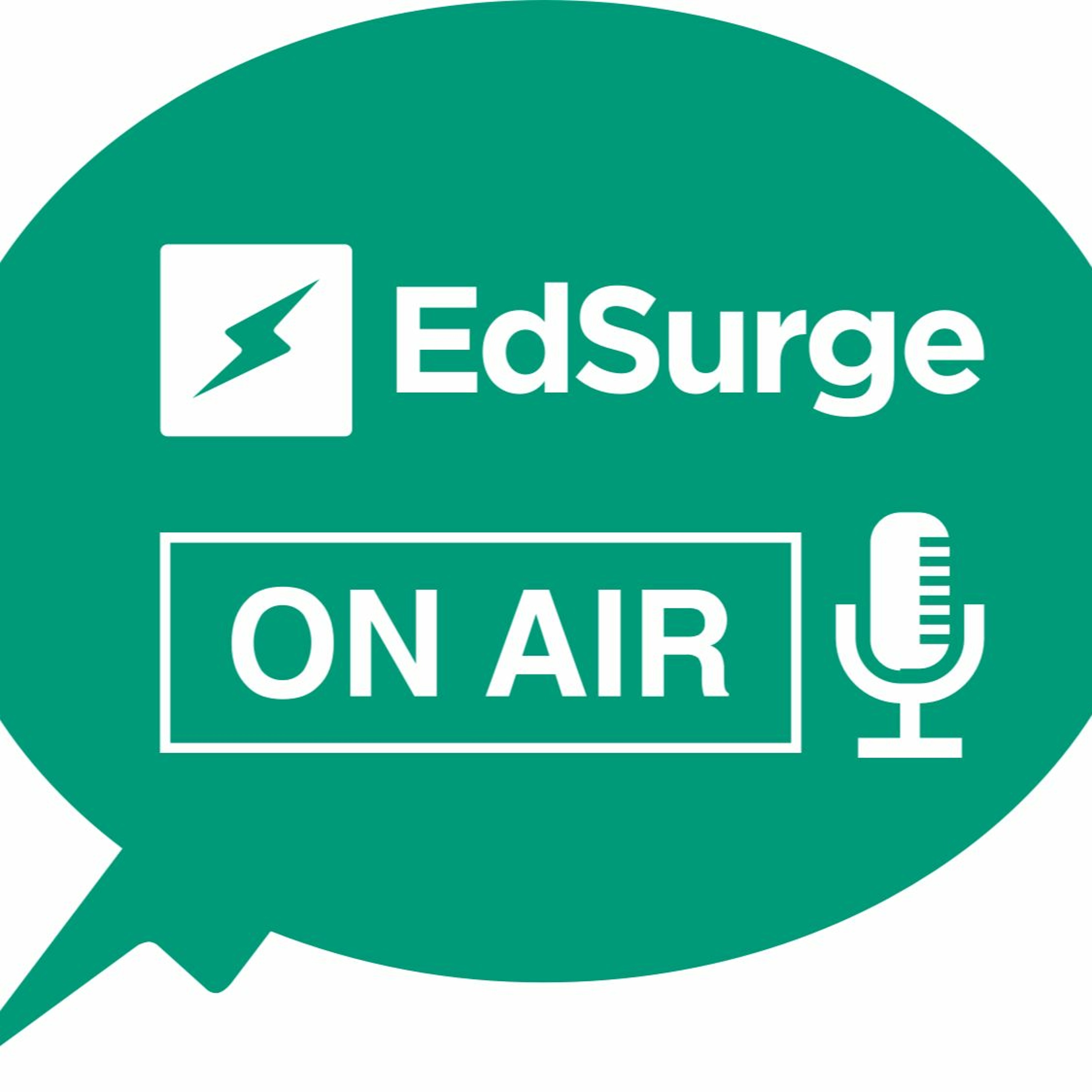
An Education ‘Intrapreneur’ on the Difficulties Innovating a Conservative Industry
Larry Singer is a CEO, but not the smug type, who’s likely to engage you in a long-winded conversation about himself, while you sip on your drink and wait for someone more interesting to come along.
Singer is different. Last week he pitched EdSurge a story about his nonprofit, Open Up Resources, but, after our conversation, we found a story about a struggling innovator. He, like many of our podcast listeners, is a person who wants to do well, but also do good.
In this podcast, we talk about his crazy 30-year journey in education, which took him from Pearson to farming, to the nonprofit work he does now. We hope his story—and its imperfect ending—can motivate those of you who are on your career journeys to find work that makes you happy and taps into your passions.
https://www.edsurge.com/news/2018-01-30-an-education-intrapreneur-on-the-difficulties-innovating-a-conservative-industry
24:0330/01/2018
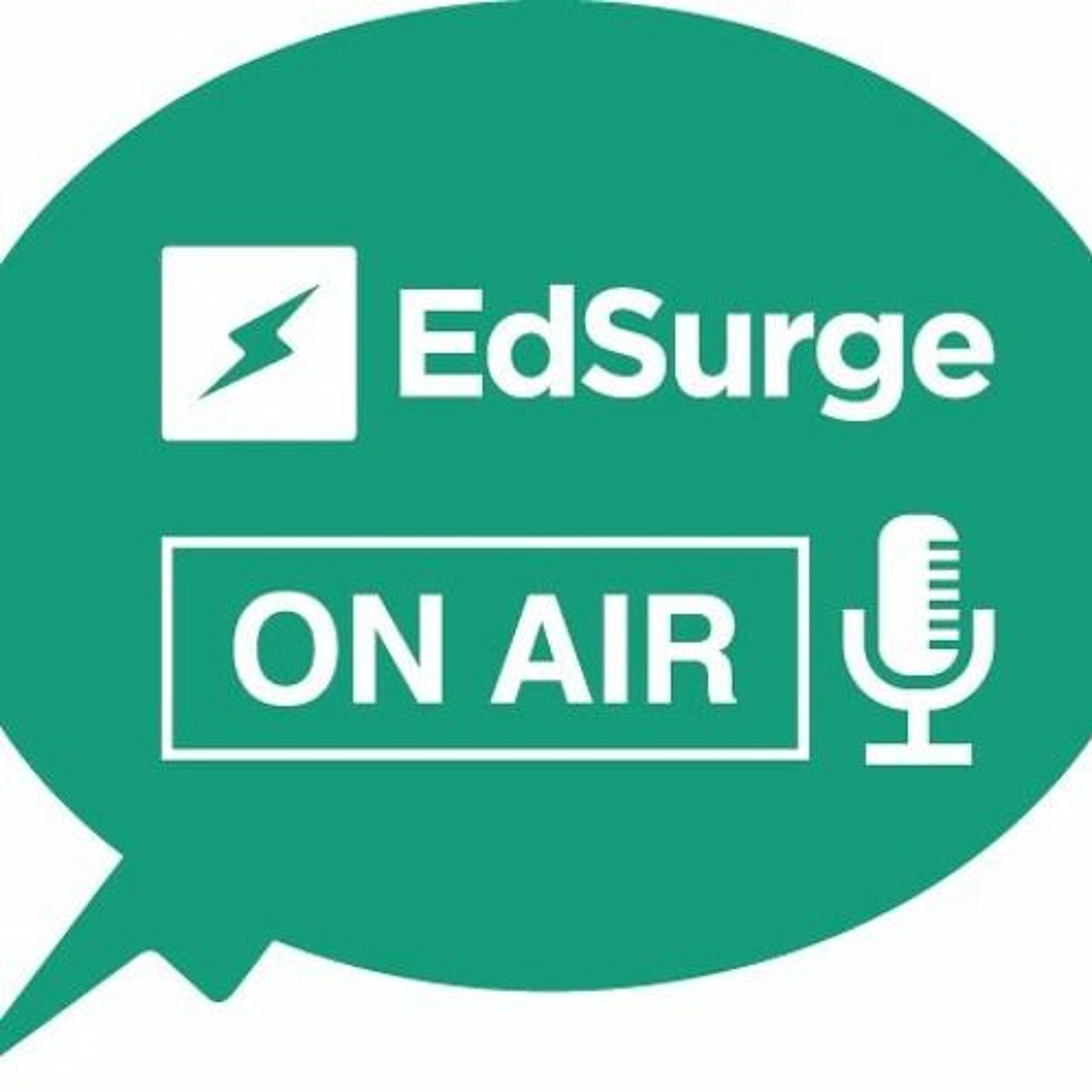
The Evolving World of Microcredentials
Many colleges these days are experimenting with short-form online degrees to try to reach new audiences and offer new options, often at a lower cost. And new upstart providers are also getting into the mix, including coding bootcamps and startups like Udacity, which offers unaccredited nanodegrees. These trends raise a host of questions about the future of credentialing.
To explore some of these questions, EdSurge recently held an hour-long video forum featuring two guests: Sean Gallagher, the founder and executive director of Northeastern University’s Center for the Future of Higher Education and Talent Strategy and author of the book, The Future of University Credentials; and Nicola Soares, vice president and managing director for Kelly Educational Staffing at Kelly Services, who has her finger on the pulse of employment and hiring trends.
27:3023/01/2018
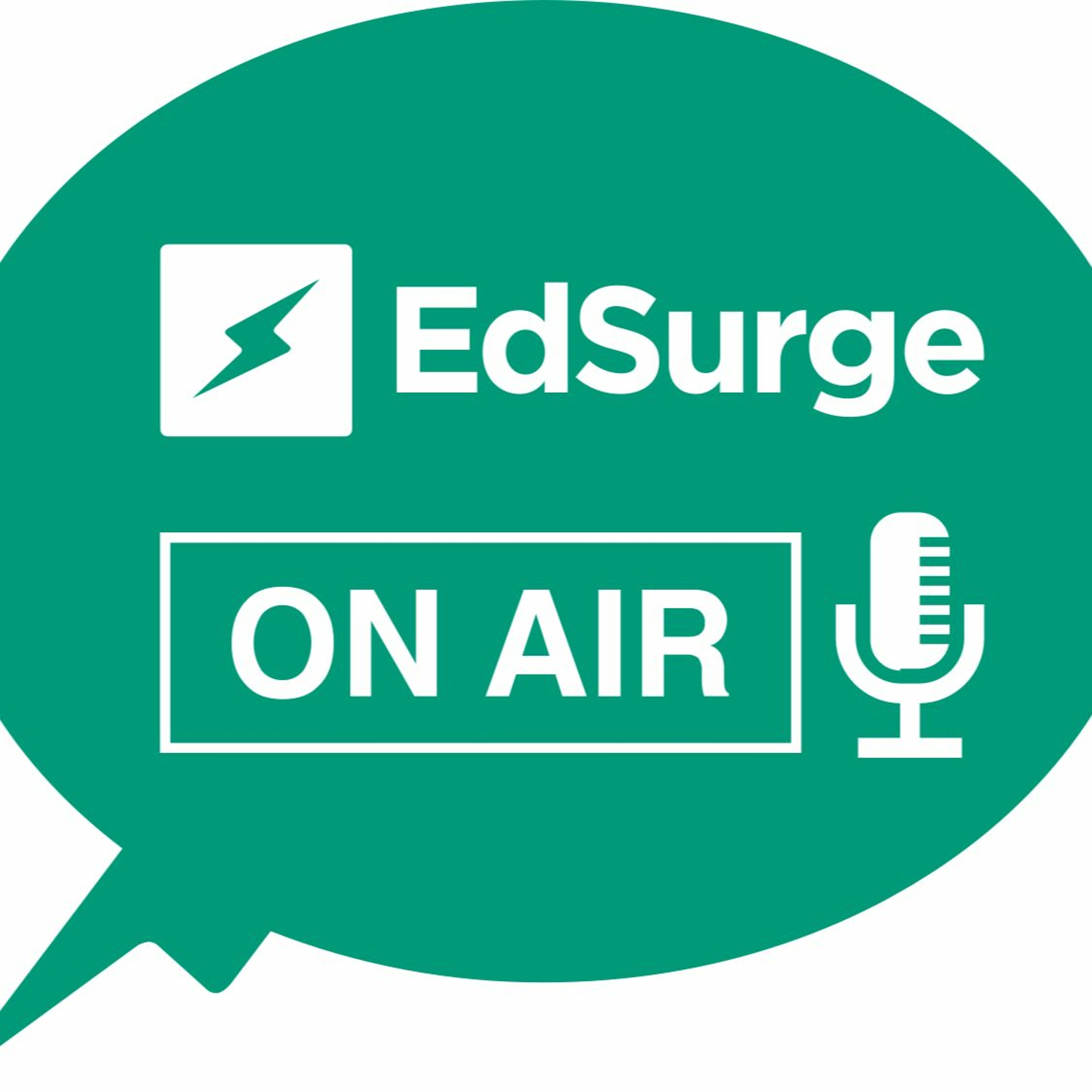
Ready Player One: Science Fiction’s Vision for The Future of Education
Humans living in abject poverty are warring over the few of resources they have left. There’s an energy crisis, and fossil fuels are in low supply. The weather has gone to extremes. This is the setting of Ernest Cline’s science-fiction novel, Ready Player One, where human civilization is in decline, and life in virtual reality beats any day in the real world.
This page-turning novel (which is being turned into a film by Steven Spielberg) follows a geeky protagonist named Wade Watts as he undertakes a mission to win billions by finding an egg hidden inside a virtual video-game universe called the OASIS.
Among the many rich themes explored in the story is education, painting a picture that could provide lessons for how teachers and school leaders design for education today.
EdSurge sat down with two interesting educators who are working to merge ideas from science fiction novels with our reality:
Amanda Licastro, an assistant professor of digital rhetoric at Stevenson University, in Maryland. She encourages students to draw from science fiction in the writing courses she teaches and has entire assignments built around Cline’s novel.
Sophia Brueckner, a former Google engineer, and artist who currently works as an assistant professor at Stamps School of Art & Design at the University of Michigan at Ann Arbor. Her work teaching engineering students to prototype from science fiction has been featured on NPR, WIRED, the Atlantic and a few other publications.
https://www.edsurge.com/news/2018-01-13-ready-player-one-using-science-fiction-to-inform-the-future-of-education
30:0716/01/2018

Where the Football Field Is Now a Farm: What an ‘Urban Work College’ Looks Like
When Michael Sorrell took over as president of Paul Quinn College in 2007, the place was nearly broke and faced a possible loss of accreditation. Sorrell wasn’t interested in following the usual playbook for running a college, so he took unusual steps right from the start. He cut the football program, for instance, and turned the playing field into an urban farm.
It's part of a model of a "modern work college," which mixes work-readiness with expanding minds, and at a price that more students could afford. EdSurge recently talked with Sorrell his model, and he shared the roundabout way that this college got into farming.
24:0709/01/2018
‘When’ Does Learning Happen Best? Dan Pink on the Secrets to Timing and Education
As the old adage goes, time is what we want most but what we use worst. So how do we use it more effectively?
That’s the driving theme in the newest book from Dan Pink, the speechwriter, TV producer and acclaimed author of bestsellers “Drive” and “To Sell is Human.”
His latest book, “When,” draws on research from psychology, biology and economics to explore how timing impacts every aspect of our lives—including of course, how we teach and learn. For instance, what’s the best time to take a test? Why do kids need more breaks? When the school day is so packed with back-to-back classes and activities, how can students, parents and educators make the best use of time?
Pink recently talked with EdSurge about how his insights can help educators, and why everyone—kids and grownups alike—can thrive with less multitasking and more recess breaks.
29:1402/01/2018
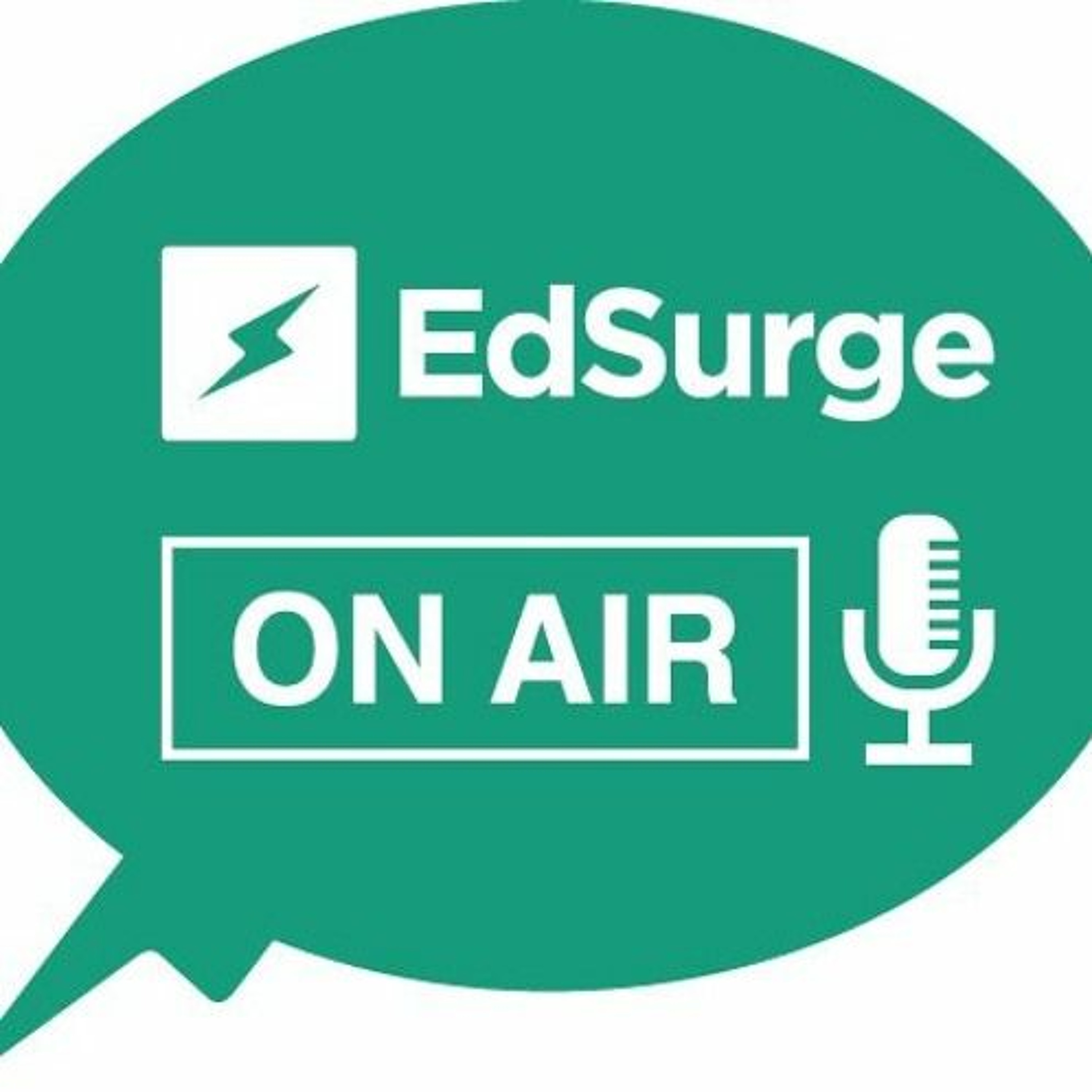
Rebroadcast: What If MOOCs Really Do Revolutionize Education?
On this holiday week, we're rebroadcasting our most popular episode of 2017:
Barbara Oakley, a professor of engineering at Oakland University, spends a lot of time these days thinking about how people learn. She’s taught more students than just about anyone else on the planet, as one of the instructors of one of the most popular online courses ever, which has had two million registered students over the several times it’s been offered. The title of the course, is Learning How to Learn.
EdSurge recently talked with Oakley about what she’s learned teaching all those online students. And she makes the case for why free online courses like hers—which are known as Massive Open Online Courses, or MOOCs—might still lead to a revolution in higher education, even though the hype around them has died down.
26:2626/12/2017

The Evolution of the New York City Edtech Scene, Empowering Parents, Taxes and Policy
This year, Americans seem to be watching government processes closer than they have in the past. Every week, some policy maker, some legislative vote or confirmation hearing is trending on Twitter and Facebook. However, our guest today, Jeanne Allen, founder of the Center for Education Reform has been closely monitoring and evaluating education policy for over 30 years. She is no rookie.
As a staunch education reformist, pushing the school choice movement forward, Allen is no friend to teachers unions and school board associations saying that they maintain the status quo, or change a little too slowly for her taste. But today, we'll talk about the changes that she is seeing in public schools, covering everything from taxes to policy and how those changes are impacting education technology. We'll also try to get her to give us a sneak peek about what she's expecting from New York City's big edtech conference this year.
21:2619/12/2017
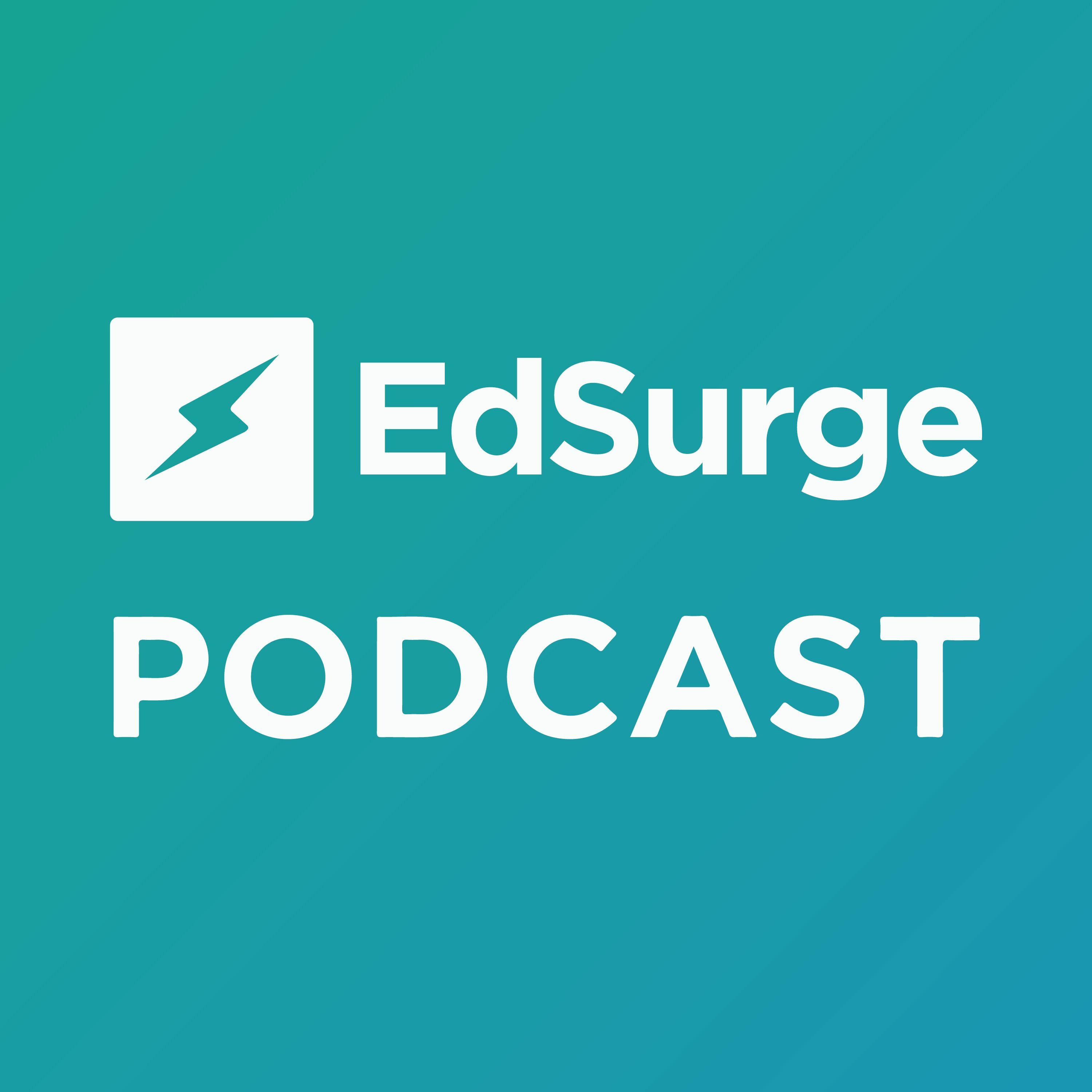
How Teaching Using Mindfulness and Growth Mindset Can Backfire
Art Markman is an expert on what makes people tick. The psychology professor at UT Austin has also become a popular voice working to translate research from the lab into advice for a general audience.
In his writings and podcasting, he’s tackled questions big and small, from commenting on the recent wave of mass shootings—to weighing in on why people like cat videos so much. And he’s full of surprising findings.
Markman recently talked with EdSurge about how his insights can help educators. He might just change the way you think about things like growth mindset, comprehensive testing, and encouraging students to make mistakes.
24:1012/12/2017

An Assembly Line of Coding Students? Tough Questions for the Computer Science Movement
What does it really mean to prepare students for a future in coding careers? Clive Thompson, a freelance writer for Wired and The New York Times magazine, thinks the reality is not as rosy as many people think.
In a popular Wired article titled, The Next Big Blue-Collar Job is Coding, Thompson criticizes pop culture and some writers, like himself, for overly romanticizing the notion of the ‘lone genius coder’—the Mark Zuckerbergs and Mr. Robots of the world—saying that’s not what every coder looks like and that's not what many coders will be.
Thompson recently talked with EdSurge about the future of programming work in the United States and the realities students will face in their future job searches.
23:4005/12/2017

In a City Marked By Low Economic Mobility, One University Hopes to Build a ‘Tech Pipeline’
For Terik Tidwell, teaching kids to code is not about algorithms or apps—it’s about economic mobility.
Tidwell is director of STEM innovation at Johnson C. Smith University, an historically-black college situated in the heart of Charlotte, NC. The city is marked by contradiction: On one hand, the place is booming, home to the headquarters of Bank of America and an emerging start-up scene. But a recent analysis scored Charlotte worst for economic mobility in a survey of the nation’s 50 largest cities, with pockets of concentrated poverty cut off from the rich opportunities just around the corner.
Tidwell sees coding as a key bridge—a way to open kids’ eyes to a way of thinking, and a world of job opportunities.
“We see a lot of students are not going into computer science—they don't know about computer science,” says Tidwell. “I had one student a year or so ago who gave me feedback. I said why didn't you think about computer science? She's like, ‘I never thought of it. I didn't have it in high school. I didn't have any tech things.’”
The university is working to change that. Just this month it scored $1.8 million in grants—from the U.S. Department of Education and from the Kenan Charitable Trust—for a K-16 initiative to expose kids in nearby schools and at the university to computer science and entrepreneurship.
Tidwell talked with EdSurge about the effort during a recent conference at Stanford University for leaders of campus innovation efforts.
23:4428/11/2017
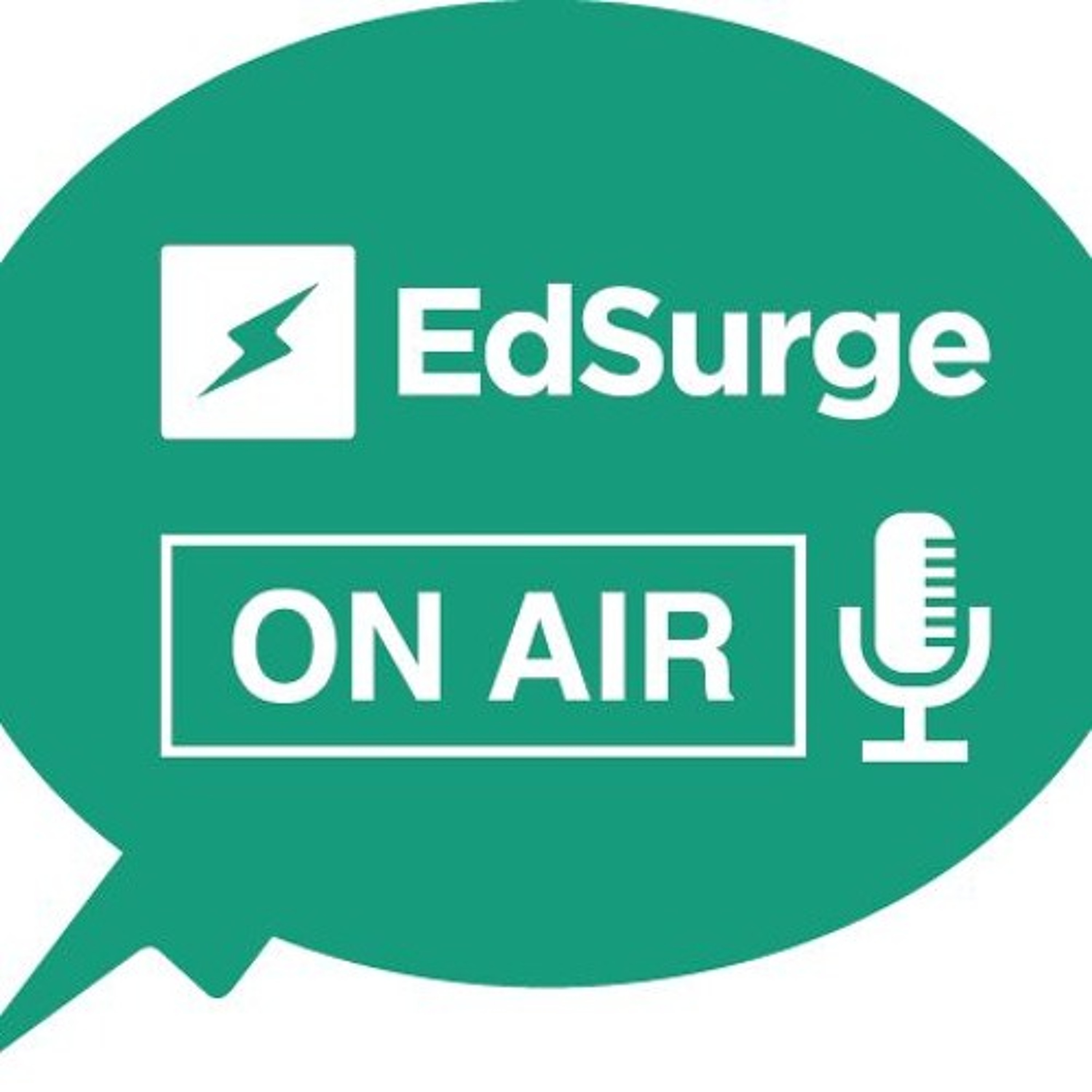
From Advocating to Letting Your Nerd Flag Fly, Educators Are Grateful For Lessons From Students
When all the stuffing, sauces, hams, turkeys, and pies are out of the oven, there is often a moment of peace during the holiday season where families sit around the dinner table and remember what they are grateful for. This year, we gathered with a community of educators during EdSurge’s Tech Leader Circle at the MakerDepot in Totowa, New Jersey to pause and have a similar moment of reflection.
For this EdSurge OnAir holiday special, we cut through the noise of the 3D printers to ask educators, “What is the one lesson their students taught them, that they are most grateful for?” From advocating for those in need to letting your nerd flag fly, it is no surprise that the lessons shared from these tech leaders will stay with them for many years to come.
11:1721/11/2017
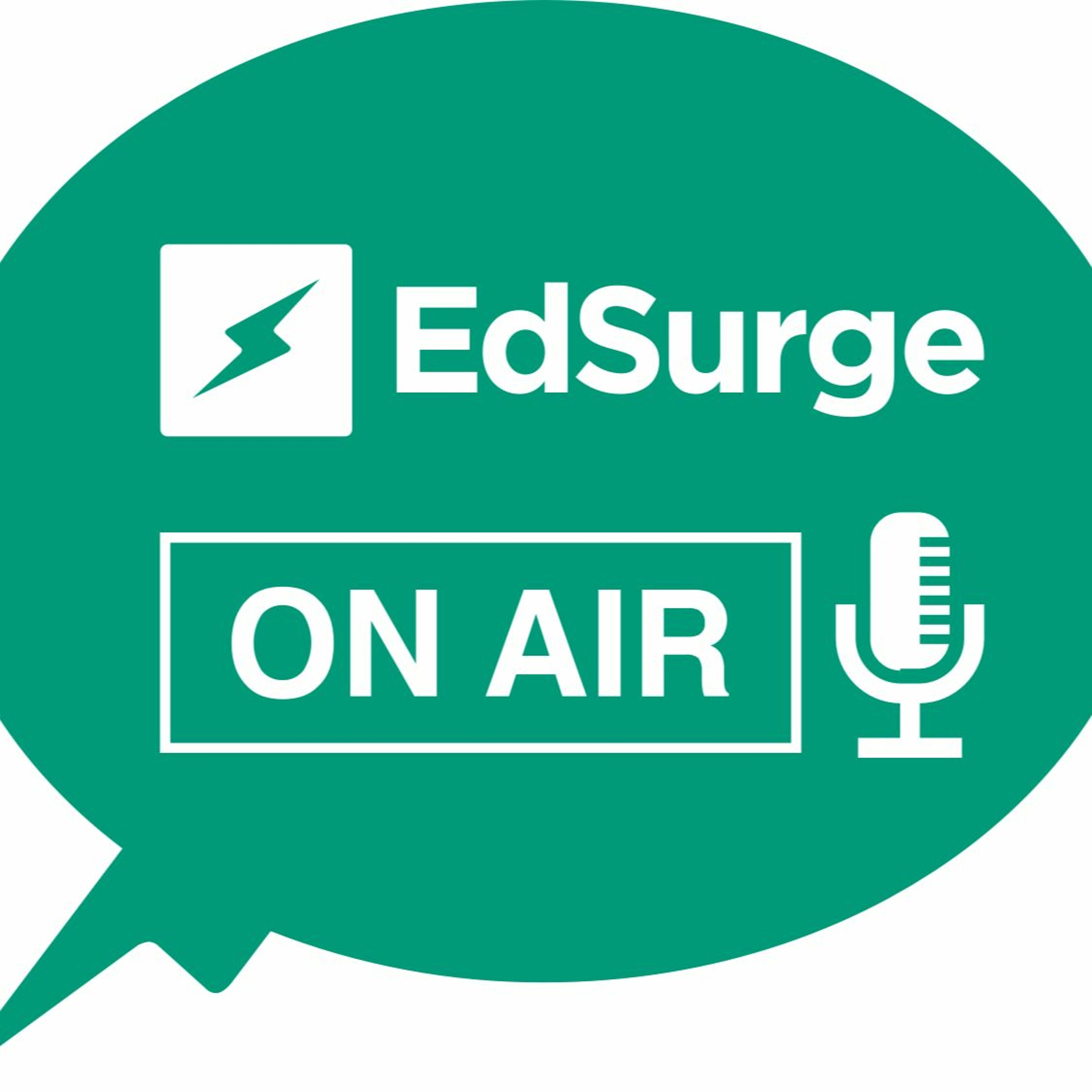
Who Controls AI in Higher Ed, And Why It Matters
It’s a pivotal time for artificial intelligence in higher education. More instructors are experimenting with adaptive-learning systems in their classrooms. College advising systems are trying to use predictive analytics to increase student retention. And the infusion of algorithms is leading to questions—ethical questions and practical questions and philosophical questions—about how far higher education should go in bringing in artificial intelligence, and who decides what the algorithms should look like.
To explore the issue, EdSurge invited a panel of experts to discuss their vision of the promises and perils of AI in education, in the first installment of our new series of video town halls called EdSurge Live. On this week's podcast, we bring you highlights from that discussion.
We invited three guests: Candace Thille, an assistant professor of education at Stanford Graduate School of Education, Mark Milliron, co-founder and chief learning officer at Civitas Learning, and Kyle Bowen, educational technology services director at Penn State University.
39:1614/11/2017
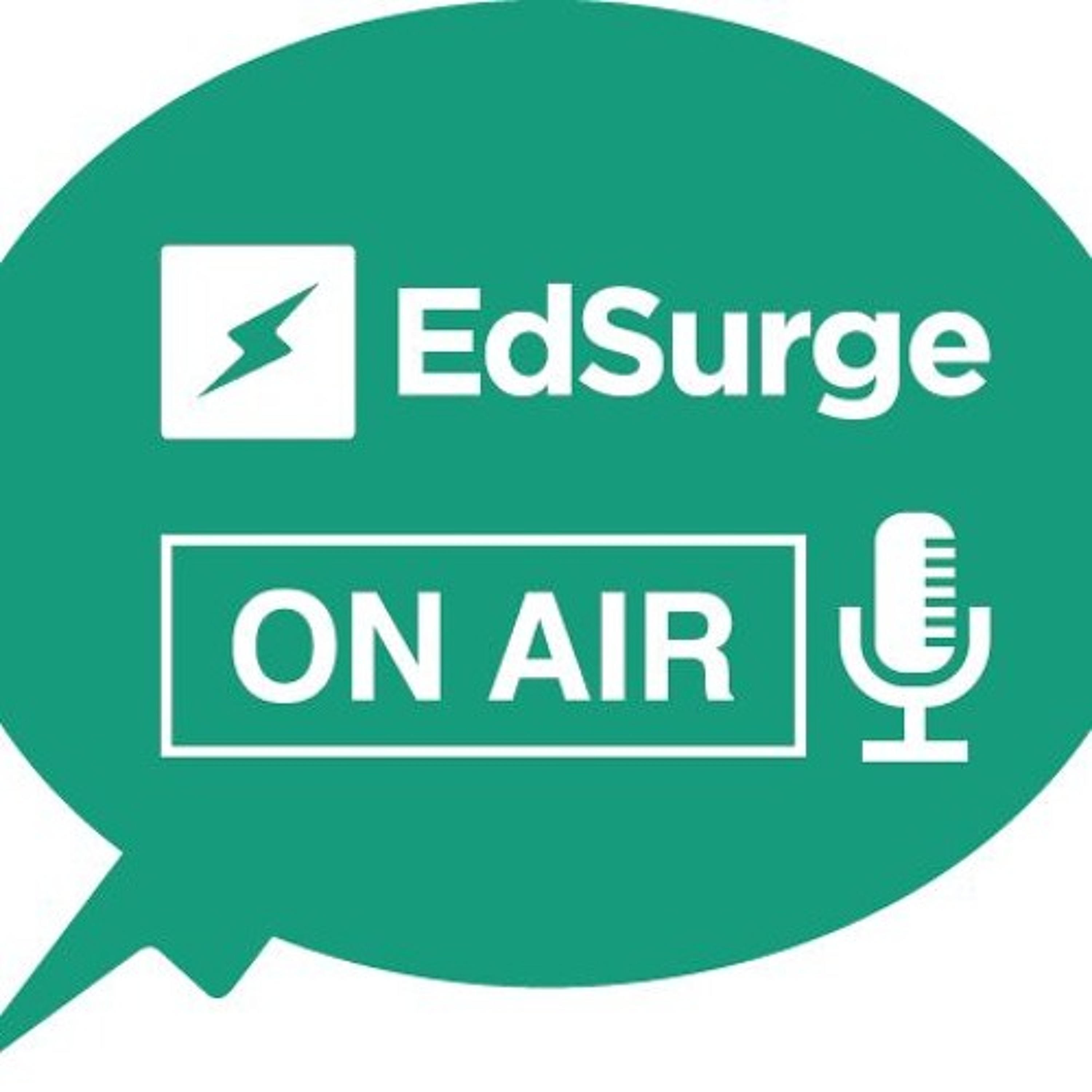
Looking to Bring ‘Civil Discourse’ to Education Debates, Ex Superintendent Turns Editor-and-Chief
By the time John Deasy resigned his post as superintendent of the L.A. school district, he had become a polarizing figure.
In an article in The New York Times covering his resignation, Steve Barr, founder of Green Dot charter schools, put it this way: "The bitterness that had developed between Mr. Deasy and his critics impeded healthy discussion." Barr went on to ask “can we actually move forward without the extremes dominating the debate?”
This year Mr. Deasy is moving forward. And he’s trying to help lead a less bitter debate about education reform, as editor-in-chief of the new publication, The Line. It’s funded by Frontline, a software company for K-12 schools.
The second Issue of The Line, released earlier this month, features some of education’s heavy-hitters: Including former Florida governor Jeb Bush, National Education Association president Lilly Garcia, and conservative think-tank writer, Rich Hess debating the polarizing topic of school choice. It has brought both John Deasy, along with and Frontline Research and Learning Institute C.E.O. Tim Clifford, to talk about the goals of the new publication, and polarizing edtech topics.
22:5507/11/2017

When Teaching Large Classes, Professors Shouldn’t Try To Put On a Show
Large classes pose tough challenges for instructors and colleges. After all, how do you craft a meaningful experience for 250 people (or more)?
Rachel Davenport, a senior lecturer at Texas State University, has taught so many large classes that she jokes she has trouble readjusting to a small seminar room. She has been recognized with several awards for hear teaching, and students regularly sing her praises (she was named “Best Professor at Texas State University” in 2013 by readers of Study Break magazine.)
EdSurge sat down with Davenport last week during the WCET conference in Denver to talk about her approach to teaching, and what technologies she’s tried—and ones she avoids.
23:3231/10/2017

Pick Your Battles: Edtech Leaders Share Strategies for Engaging in Political Discourse
Silicon Valley tech giants have made their stance clear on a number of political and social issues this year. Recently, Microsoft president Brad Smith went so far as to offer to pay legal fees for any employee who faces deportation after President Trump announced the end to the deferred action for childhood arrival program, better known as DACA. Teachers’ unions have also planted their flag both by condemning white nationalists in Charlottesville and the decision to end DACA.
However, leaders in the education technology space seemed to be treading a bit more lightly as they begin to address new social and political issues effective their constituents. We were curious about the role edtech leaders play in such a tense political environment, so we reached out to some.
To have this discussion, we talked to two edtech leaders who recently signed an open letter to president Trump denouncing the decision to end DACA: Jeffrey Collins, the vice president of communications and partnerships for After School App, who also happens to be a former U.S. diplomat, and Vibhu Mittal, the CEO of Edmodo and a former Google employee. Both of these gentlemen signed on to this letter and so you'll learn why they made that decision.
27:1524/10/2017
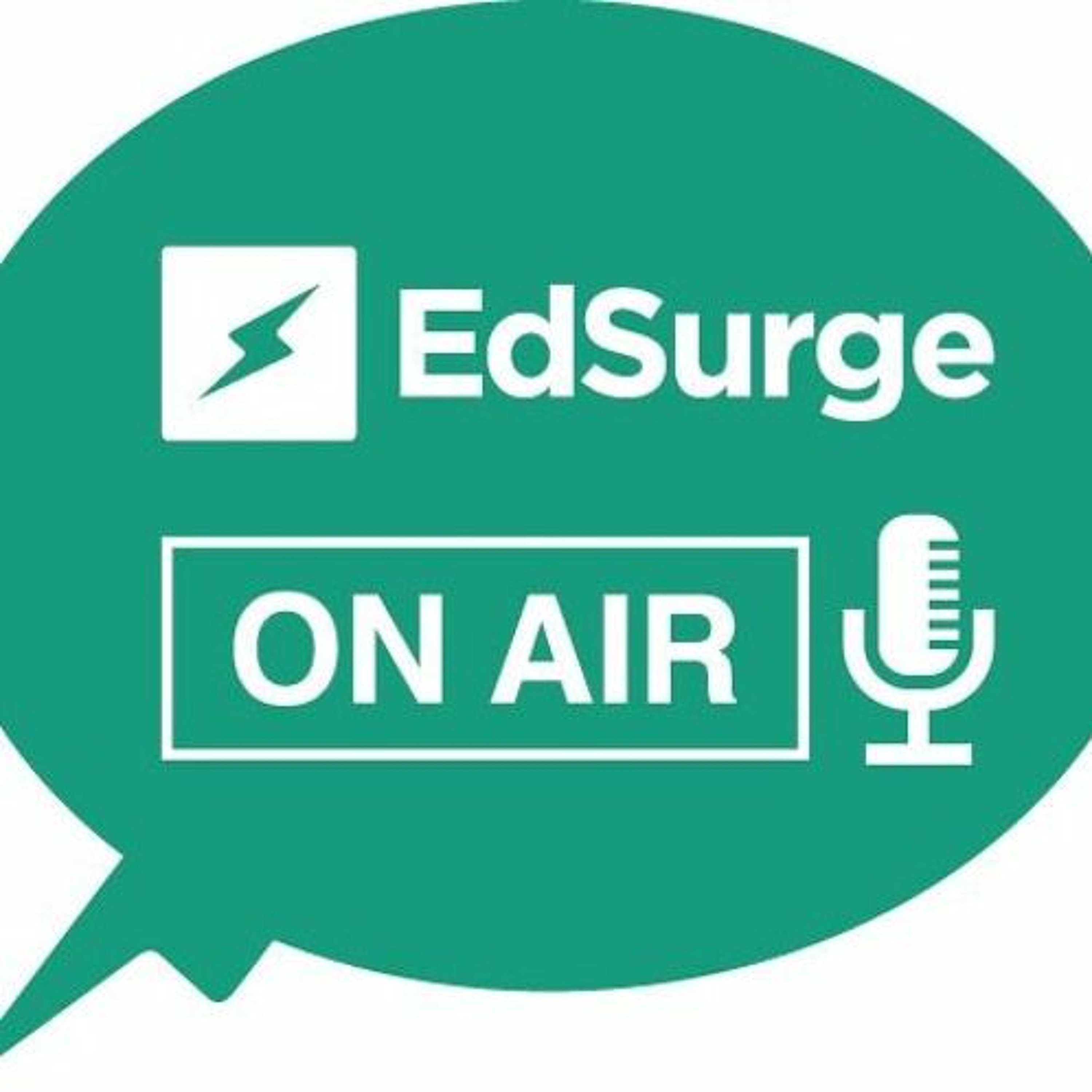
Once Reviled in Education, Wikipedia Now Embraced By Many Professors
A decade ago professors complained of a growing “epidemic” in education: Wikipedia. Students were citing it in papers, while educators largely laughed it off as inaccurate and saw their students as lazy, or worse. As one writing instructor posted to an e-mail list in 2005: “Am I being a stick-in-the-mud for for being horrified by students’ use of this source?”
How things have changed. Today, a growing number of professors have embraced Wikipedia as a teaching tool. They’re still not asking students to cite it as a source. Instead, they task students with writing Wikipedia entries for homework, exposing the classwork to a global audience (and giving students an outside edit by an army of Wikipedia volunteers). There’s even a new peer-reviewed academic journal about using Wikipedia in higher education.
One of the biggest proponents of the power of Wikipedia in the classroom is Robert Cummings, associate professor of Writing and Rhetoric at the University of Mississippi. He even wrote a book about the topic, called “Lazy Virtues: Teaching Writing in the Age of Wikipedia.” EdSurge talked with Cummings about how Wikipedia has changed his teaching and why he thinks professors are changing their attitude about the anyone-can-edit resources.
21:5817/10/2017

Facebook and Fake News: Esther Wojcicki On Teaching Digital Journalism in High School
At times 2017 has seemed like a new era for reporting, where newsrooms have had to question and reevaluate their purpose for existing. For the mainstream media, technology has been both a friend and an enemy. So how do we prepare today’s high school journalists (and tomorrow’s mainstream reporters) for such an era?
Our guest today: educator, journalist and author of the book "Moonshots in Education," Esther Wojcicki, who most of her students call Woj, has some ideas. Esther has been teaching for more than 30 years and was an early adopter of edtech in her classroom. Today she's turned her classroom into a multi-million dollar media center. And she's one of the few educators with her own Wikipedia page. You might call her the hipster teacher since she embraced collaborative learning, flexible seating and student autonomy before it was trendy.
This week I'll talk with Esther about the state of high school journalism, how technology is changing the game for journalists in the field and the classroom, and all the things that she's doing with her multi-million dollar media center in Palo Alto.
https://www.edsurge.com/news/2017-10-09-apps-journalism-and-fake-news-inside-esther-wojcicki-s-high-school-media-empire
23:5210/10/2017

In PreparedU, A College President Argues for Mixing Liberal Arts And Workplace Readiness
The generation of students attending college today just aren’t that impressed by traditional markers of authority—and they’re not coming to campus to gaze up at wise leaders on a pedestal (well, at least according to surveys). And that’s one reason the president of Bentley University, Gloria Cordes Larson, invites students to call her by her first name.
It’s a move that President Larson -- I mean, Gloria -- sees as part of the university’s push to make higher education more of a hybrid experience between immersion in traditional liberal arts and a focus on practical skills and internships. Bentley is a bit unusual, in that it is an undergraduate institution focused on business. But Gloria Larson argues in a new book that all of higher education should embrace this mixture, and move past the notion that a college has to focus on either liberal arts or practical workplace preparation. The book is called PreparedU: How Innovative Colleges Drive Student Success.
EdSurge recently talked with Larson about her new book, and about what her research shows today’s students are looking for from higher education.
19:0703/10/2017
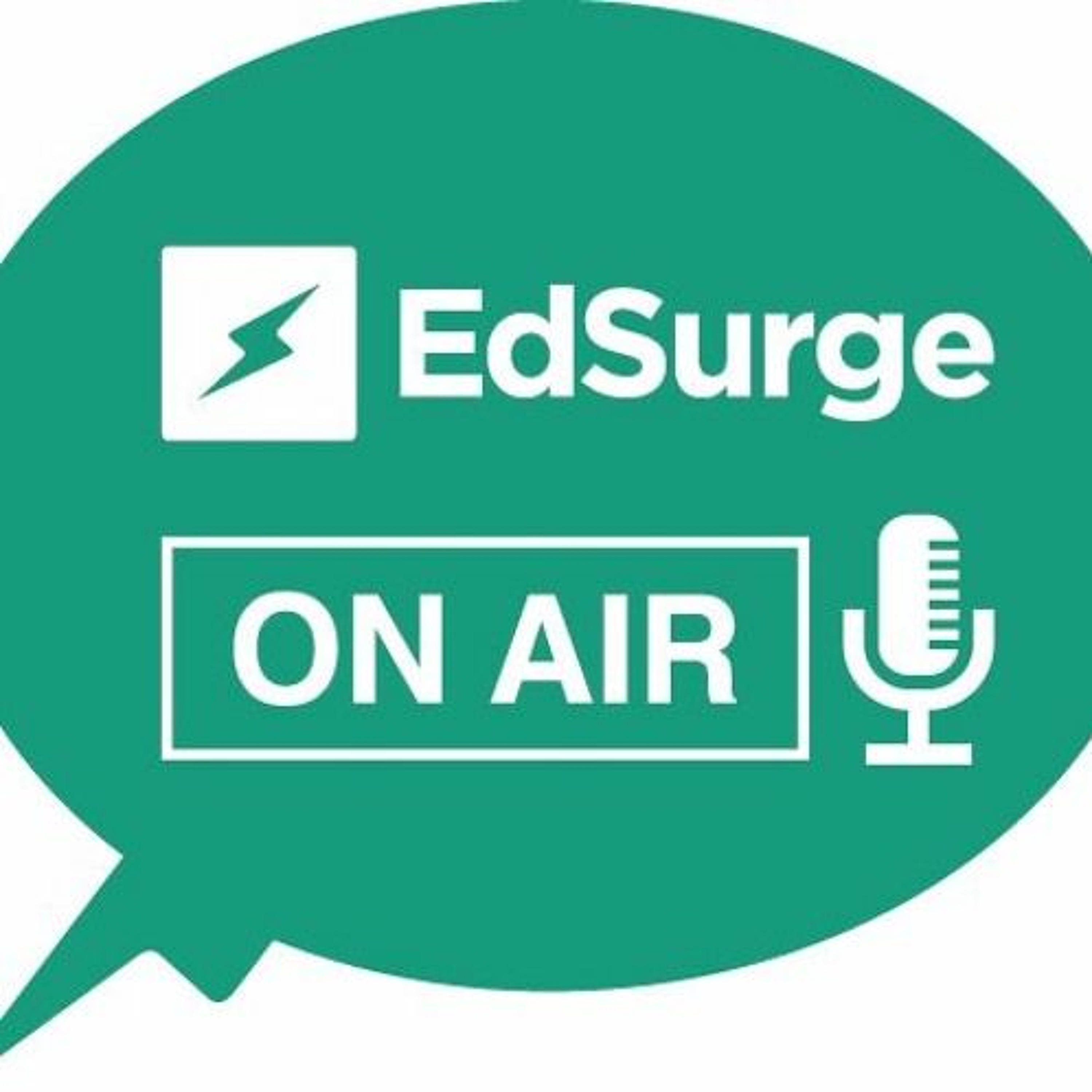
What Will It Take to Push the K-12 Maker Movement to Be More Inclusive?
It’s not solely about having a “makerspace” anymore. These days, schools are trying to figure out how to bring making into every facet of the school day, with mobile kits, clubs and more. And when it comes to incorporating making into everyday curriculum, Cicely Day and Knikole Taylor are experts. Cicely Day works in Oakland, California at Burckhalter Elementary School as an instructional teacher leader, where she helps support teachers and students in ELA/math and in the computer lab. Two times zones over, Knikole Taylor is a blended learning specialist in a Dallas, Texas suburban school district, where she support Pre-K to 12th grade teachers and students with all things digital teaching and learning.
But despite the work of on-the-ground educators like Day and Taylor, the maker movement in K-12 schools is far from perfect. What does it really take, for example, to diversify the communities of maker educators and mentors out there? And how does one respond to educators or critics who say that maker education is “just a fad”?
To discuss and debate these questions and more, Day and Taylor came onto the EdSurge podcast. Take a listen, or skip below to get right to the Q&A!
https://www.edsurge.com/news/2017-09-26-what-will-it-take-to-push-the-k-12-maker-movement-to-be-more-inclusive
23:2326/09/2017

MIT's Mitch Resnick on What 'Toy Story' Gets Wrong About the Future of Play
If you’ve ever seen the Toy Story movies, you may remember the neighbor kid, Sid. His room is presented in horror-movie fashion, with dim lighting and discordant music, and the toys are all in pieces, as Sid dismantles them and remakes them in his own crazy way.
To Mitch Resnick, an MIT Media Lab professor and early pioneer of the maker movement for kids, this Hollywood’s portrayal is problematic, and part of a larger trend toward overly regimenting education these days.
“I worry about the way the movie presents the inventor as sort of the dysfunctional character, and the bedroom with the toys that come alive on their own is the one that’s full of light and seen in a very positive light,” Resnick explains.
Resnick argues that all kids—and even grownups—should approach life the way we all did in kindergarten, where learning happened through playfully rearranging the world around us. He makes that case in his new book “Lifelong Kindergarten: Cultivating Creativity through Projects, Passion, Peers, and Play.” It’s an argument that the inventors of kindergarten accidentally designed the kind of learning environment needed at all levels of education these days—whether it’s in school, college, or the workplace.
EdSurge talked with Resnick this week about his new book, about what’s next for the free Scratch programming language his MIT lab developed, and about his take on what free online courses should look like (he has one coming out next month based on his book).
26:3819/09/2017
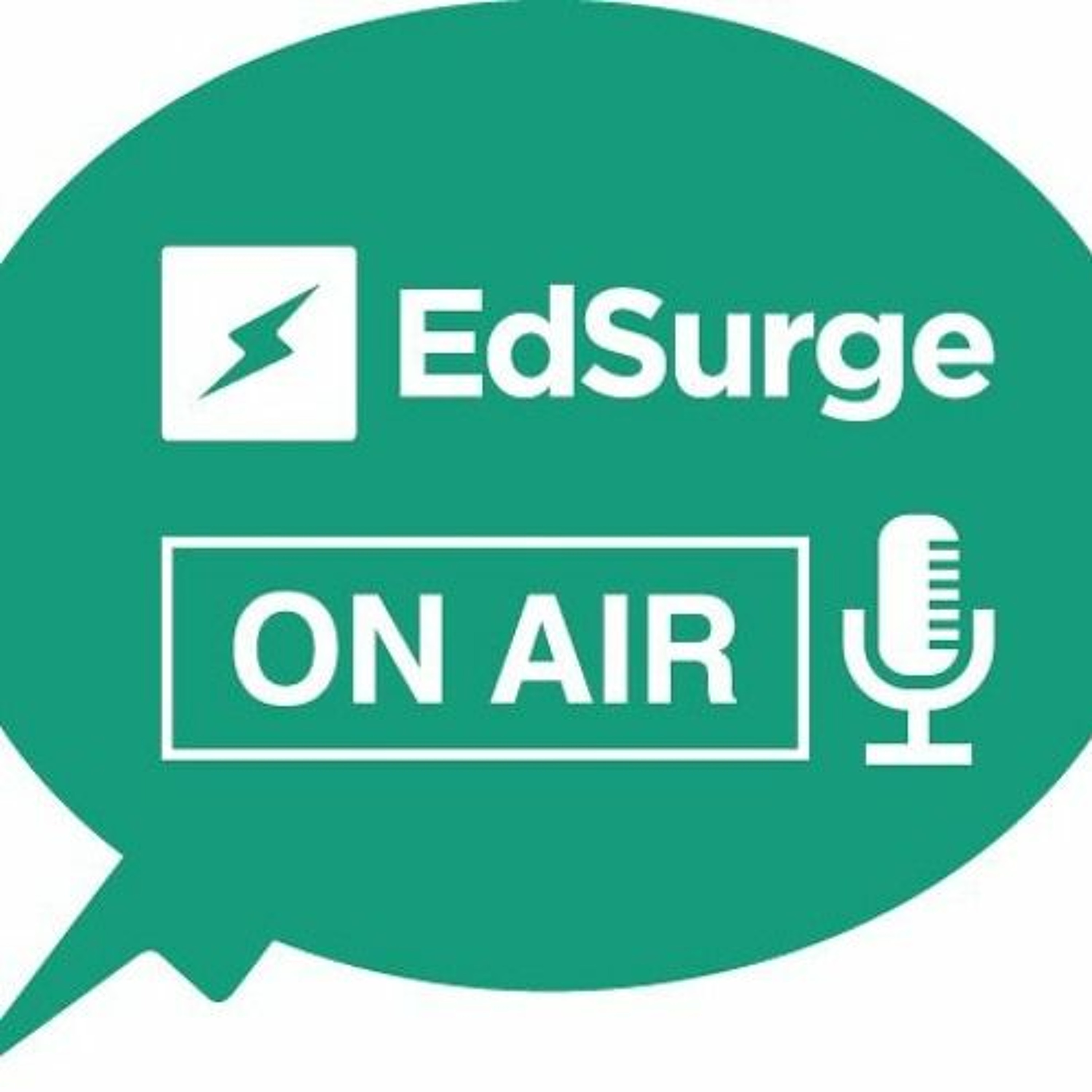
Podcast Extra: Personalized Learning’s Unknowns: Silicon Schools’ Five-Year Journey
Five years ago, a former high school principal named Brian Greenberg joined forces with an heir to the retail giant Gap, John Fisher, to start a fund to help scale promising charter schools.
This week the group, called Silicon Schools Fund, released a report reflecting on its efforts so far, which have supported 31 schools, 24 of which were brand new, with a total of $50 million. The bad news: They admit there isn’t yet enough hard evidence that personalized learning really works. The good news: There are plenty of positive signs, both when measuring students across standardized tests and when looking for signals of engagement. They suggest moving forward with what they call Urgent Patience.
EdSurge’s CEO, Betsy Corcoran, sat down with Greenberg to talk about the report, along with his colleague Caitrin Wright. Here are highlights from their conversation.
27:4513/09/2017
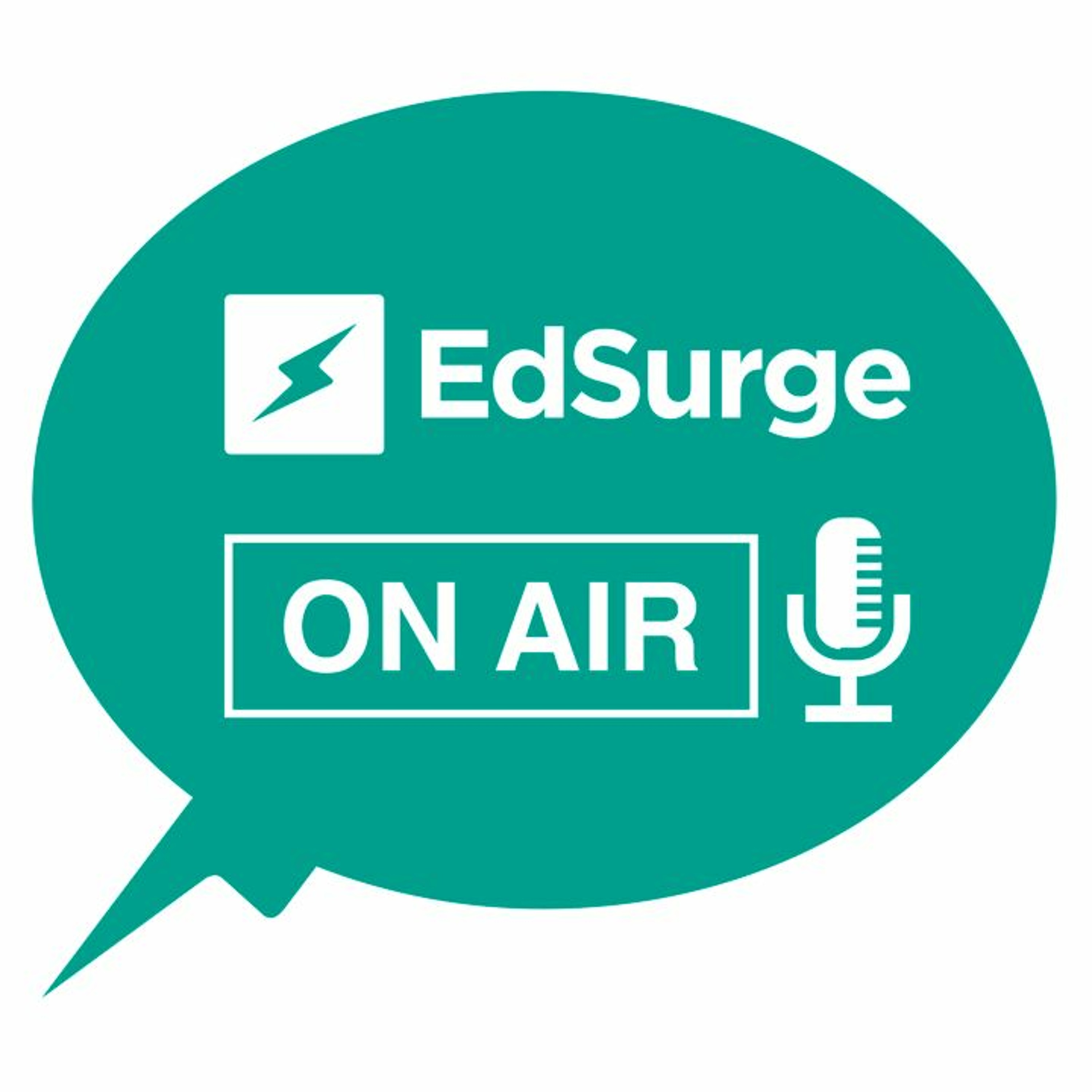
Questioning the Core Assumptions of Personalized Learning with Math Blogger Dan Meyer
A few weeks ago, while perusing Twitter for news stories, a few folks on the EdSurge team came across a Tweet by math blogger, TED talker, and former teacher Dan Meyer. He had recently read an EdSurge article regarding struggles that had taken place during a Fulton County Schools’ personalized learning initiative in Atlanta, and in response, Meyer Tweeted, “Can you send me a calendar invite to the meeting where we question the core assumptions of personalized learning?”
Though the “invitation” wasn’t directed at anyone in particular, EdSurge decided to take him up on the offer. Last week, Meyer join in on a very special Google On Air Hangout for a live discussion around exactly that topic—the “core assumptions” of personalized learning, where Meyer thinks PL helps or hurts classroom learning, and how technology fits into all of this.
42:2012/09/2017
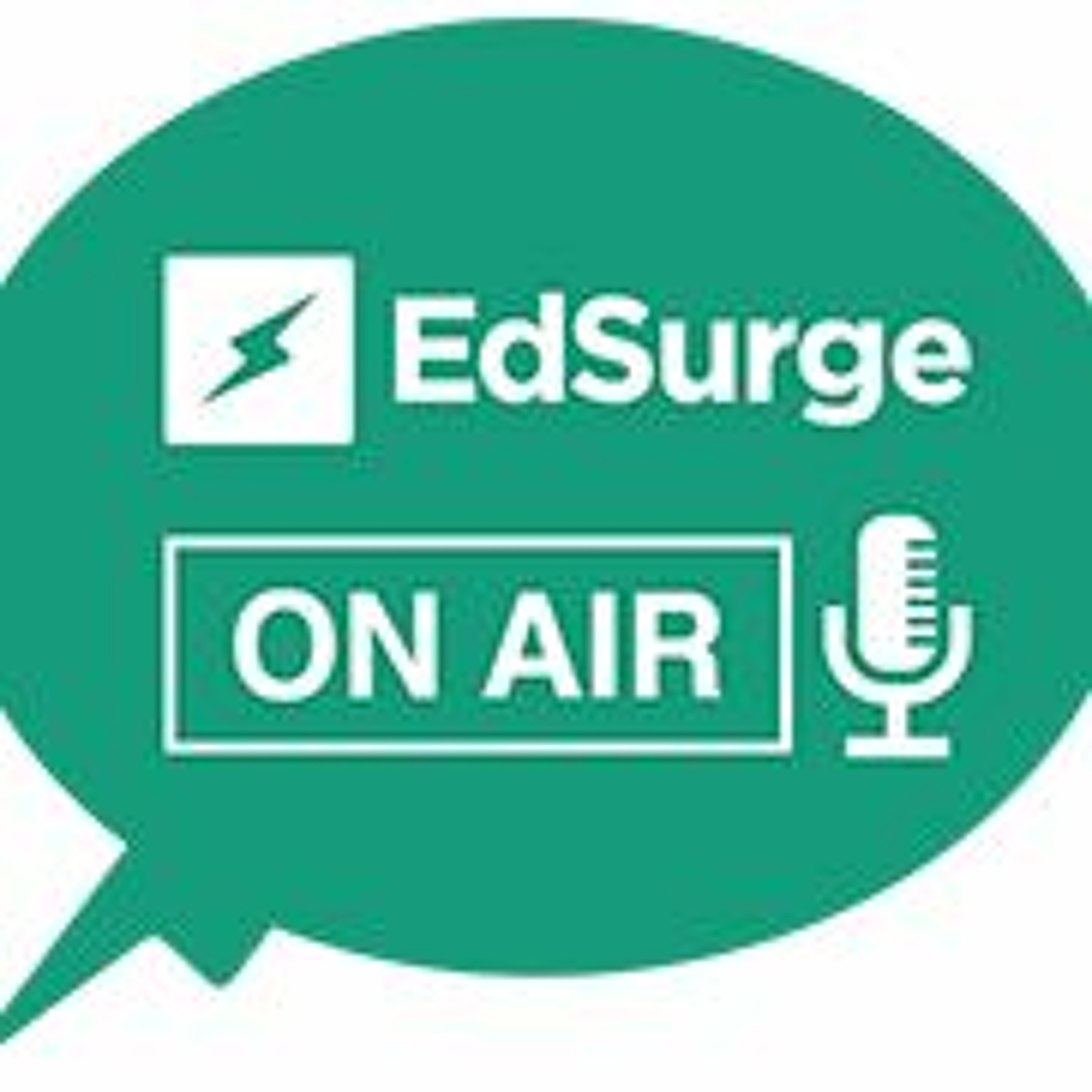
Do the Technophobes and Technophiles Both Need a ‘New Education’?
Sometimes it's hard to imagine change—especially when it comes to a 150-year-old system, such as higher education in the United States. But much of the system we see and experience today was designed, and perhaps it can be again. At least, that's what professor Cathy Davidson writes in her latest book, “The New Education.”
As director of the futures initiative at CUNY's Graduate Center, Davidson studies and thinks a lot about cultural history and technology. In the book, she outlines several ways that higher education as we know it was blueprinted and built. But even more, she argues for why an education overhaul should happen again, especially in the digital era.
EdSurge spoke with Davidson about the book and why she thinks a revision in higher ed is necessary, and how that’s tied to the increasing presence of technology and automation in institutions—and changing economic demands.
32:4605/09/2017

Can This MIT Student Entrepreneurship Program Bridge the Israeli-Palestinian Divide?
Ideological and political conflicts exist across the world, and often appear oversimplified and binary: conservative versus liberal, left versus right, the 99 versus 1 percent.
Yet the reality is often much more complicated. And for children born in the wake of the Israeli-Palestinian conflict in the Middle East, growing up in the world of ideological tension has been a way of life.
While Middle Eastern entrepreneurs have tried to encourage peace and conversation between Israel and Palestine through binational work, many organizations struggle to recruit from either country. However, one of these programs—Middle East Entrepreneurs of Tomorrow (or MEET)—has used an education-first approach since 2004 to invest in bright young students. With programming support from MIT faculty and graduates, MEET brings together equal numbers of Israeli and Palestinian high school students each year to engage in coding and entrepreneurship training, and subsequently, cultivate cross-border relationships and collaboration.
Recently, EdSurge’s Mary Jo Madda came across MEET on a trip to Israel, and upon returning to San Francisco, connected with the team’s U.S. Development Director Etai Freedman, an Israeli native, to hear more about teaching student entrepreneurship and what American student-facing programs learn from MEET. Check it out!
16:2530/08/2017
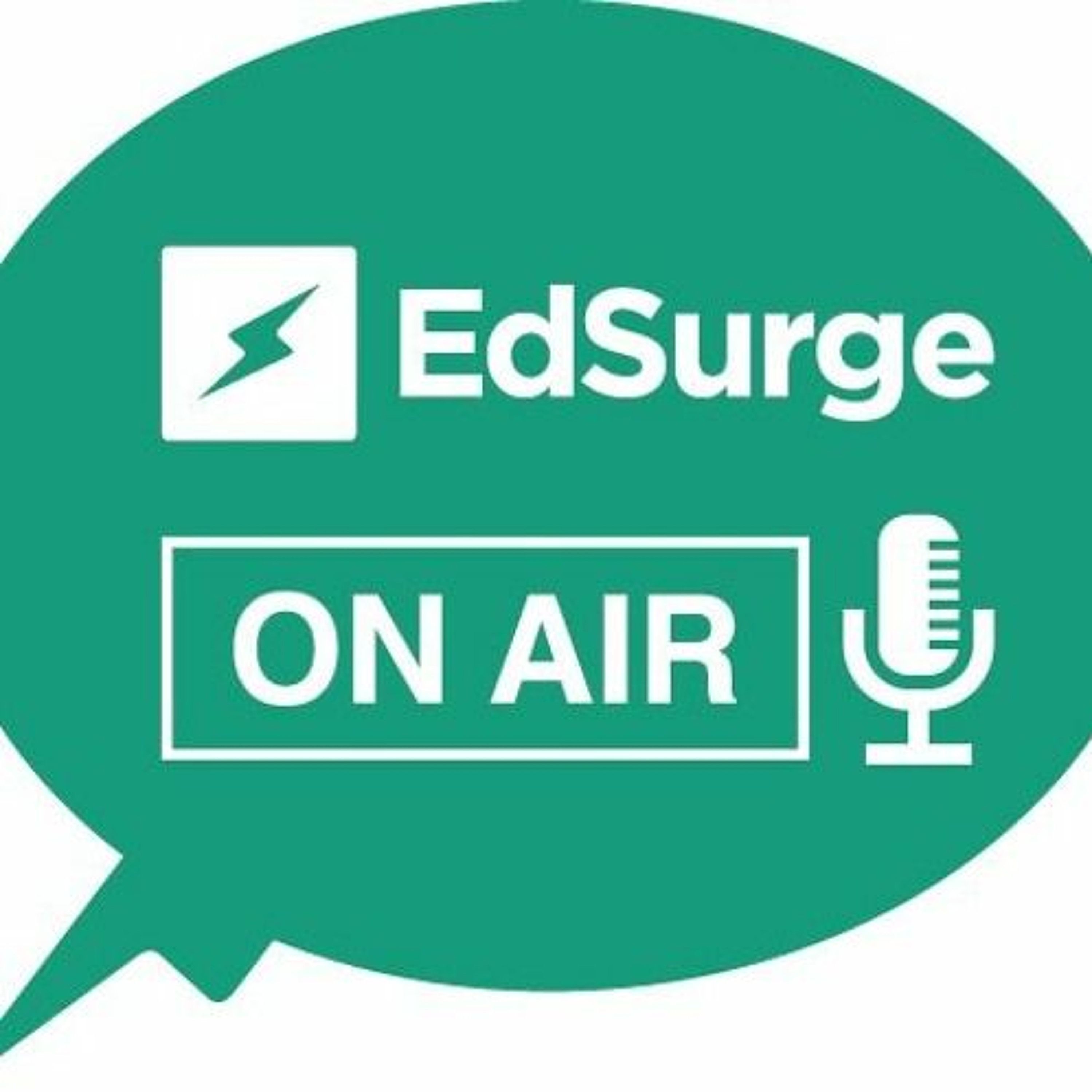
A Data Scientist’s Warning About ‘Weapons of Math Destruction’
These days algorithms have taken on an almost godlike power—they’re up in the (data) clouds, watching everything, passing judgment and leaving us mere mortals with no way to appeal or to even know when these mathematical deities have intervened.
That’s the argument made by Cathy O'Neil in her book “Weapons of Math Destruction: How Big Data Increases Inequality and Threatens Democracy.” If algorithms are gods, she’s one of the high priests, as a data scientist and mathematician.
These days O'Neil is trying to challenge this divine narrative of Big Data and point out how fallible the mathematical frameworks around us are—whether in financial systems, in social networks or in education. As she writes, “many of these models encoded human prejudice, misunderstanding and bias into the software systems that increasingly manage our lives.”
EdSurge connected with O'Neil to hear how her behind-the-scenes view of the 2008 financial crisis led her to try to push for tools that can audit Facebook, Google, and other algorithm-fueled systems now asserting themselves in human affairs.
28:0022/08/2017
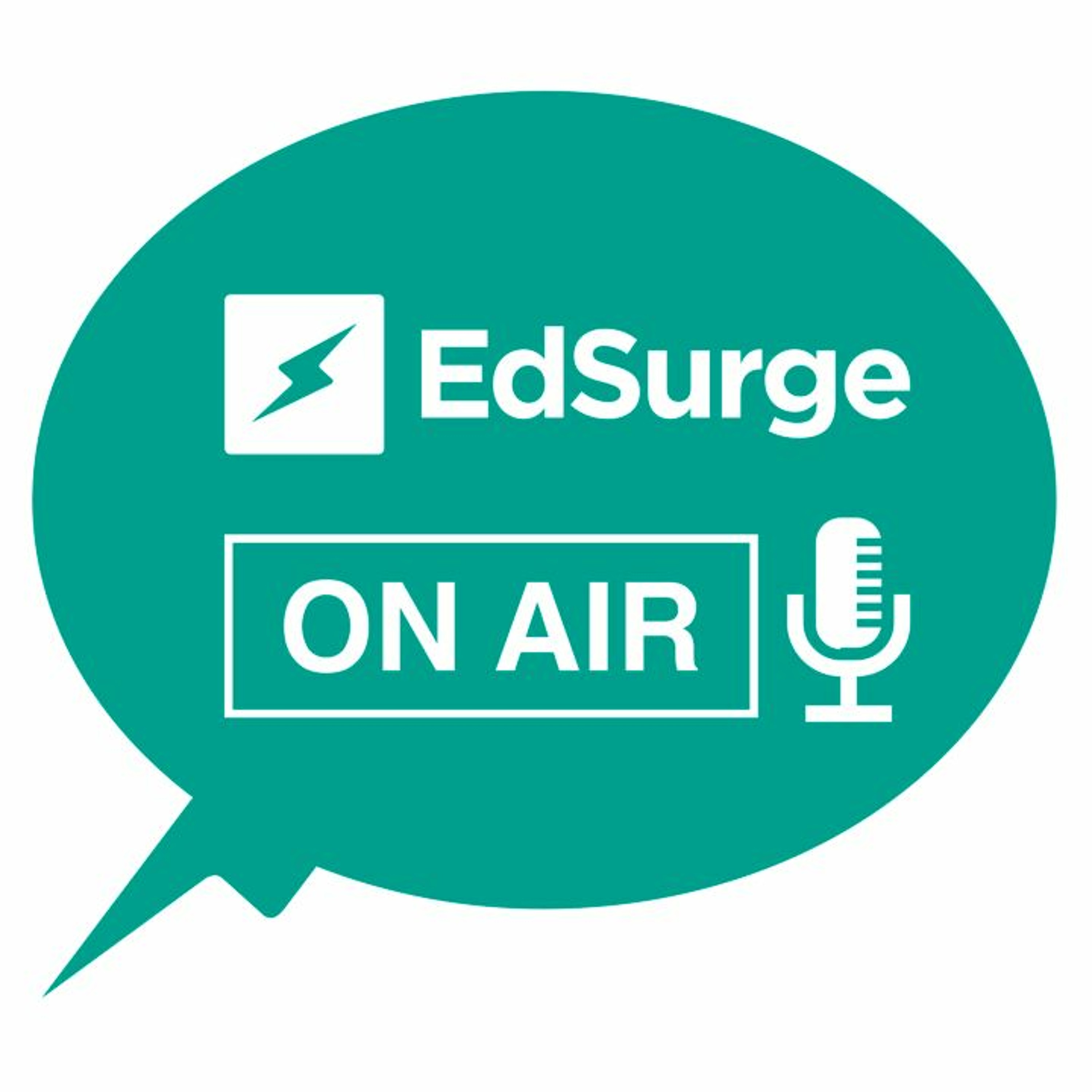
With 3D Technology, Special Education Students Can Focus on Content—Not Access
Neal McKenzie says teachers of visually impaired students “have been makers for a long time.” The assistive technology specialist has designed dozens of objects to help his students access content, including an award-winning device to teach Braille. In this special edition EdSurge On Air podcast, EdSurge's own Michael Winters reads McKenzie's article aloud, in which he offers tips for special-ed teachers to incorporate 3D design into curriculum, along with his favorite maker resources.
07:2616/08/2017
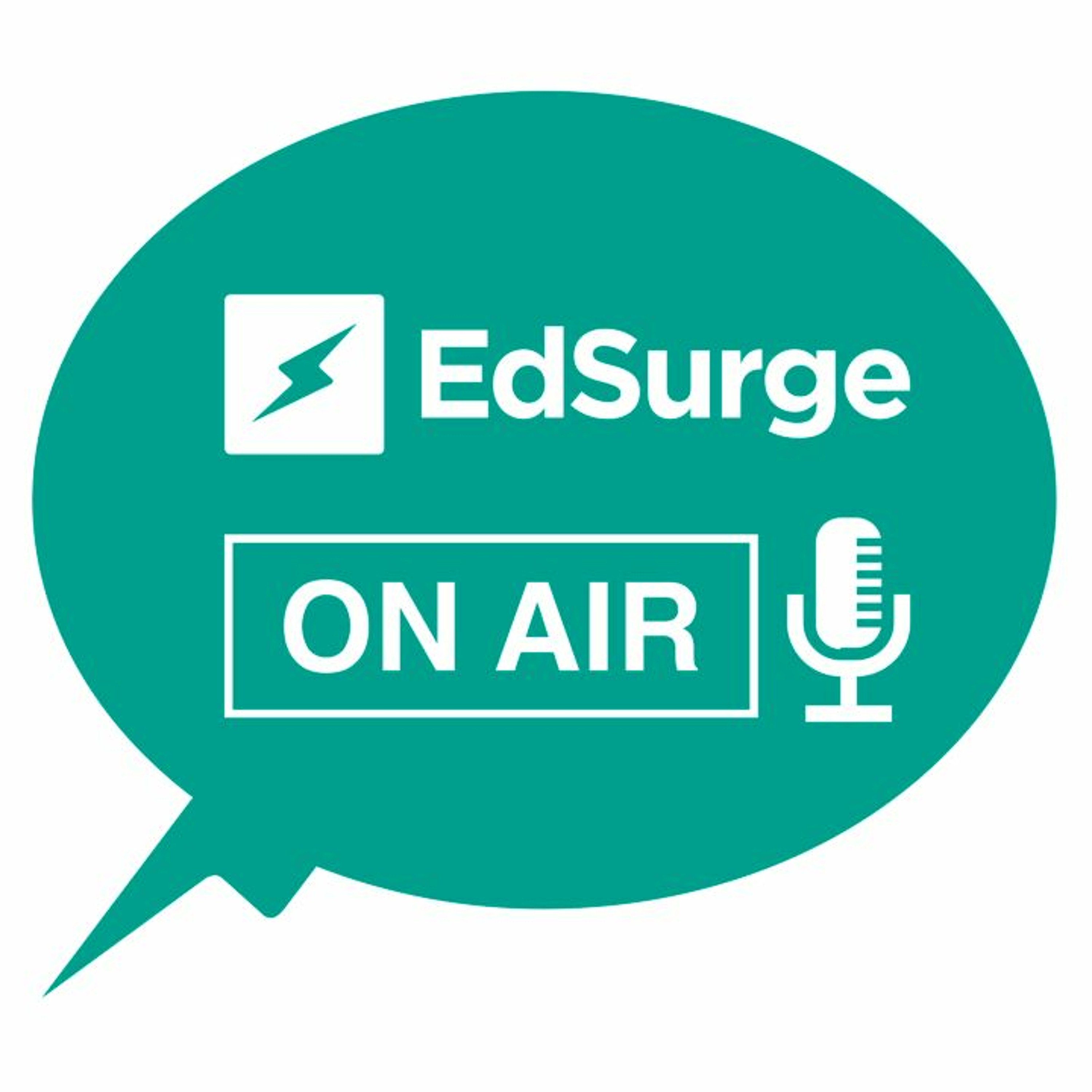
Why Late Adopters Are Skeptical of Edtech (and How to Get Them on Board)
There are plenty of “innovators” and “early adopters” of education technology out there, from educators who make the rounds on the ISTE and SXSWedu conference circuits to consultants and entrepreneurs who push for adoption of certain tools or practices. But what about those who are more skeptical?
The “technology adoption life cycle,” inspired by the work of American communication theorist and sociologist Everett Rogers, argues that 50% of adopters fall into the “late adopter” or “laggard” categories. Despite making up such a huge percentage, late adopters and laggards rarely get invited to be a part of the edtech conversation. What do they need that early adopters don’t—and is it necessarily a bad thing to be a late adopter?
To find out, EdSurge invited Bret Harrison—a fifth grade teacher from King City Arts Magnet School in central California with 28 years of teaching experience—to hop on the EdSurge podcast. Harrison falls somewhere in between the late majority and laggard categories; in fact, he describes himself as a “reluctant adopter.”
29:4315/08/2017
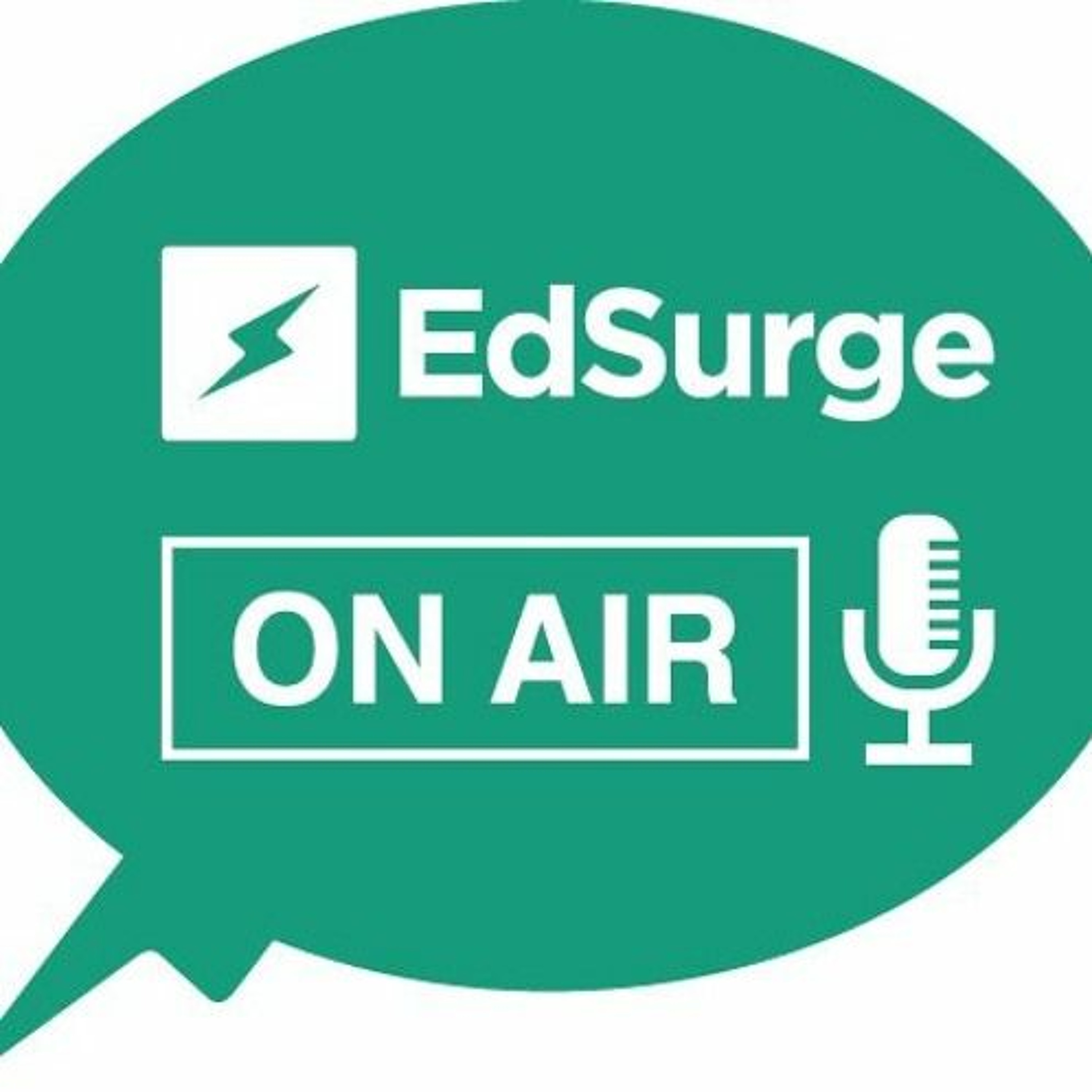
Lessons From Flipped Classrooms and Flipped Failures
Robert Talbert, a math professor at Grand Valley State University, talks about his new book on flipped learning—a method catching on these days in college classrooms. He describes it as a new philosophy of teaching. Unlike the lecture model, in which students first encountering new material in the classroom, in the flipped model the students’ first encounter with the material happens outside of class, usually in the form of video lectures. And class time is used for more interactive activities that encourage students to apply what they’re learning while the professor is there to step in and help if necessary. EdSurge sat down with Talbert to talk about his experiences, and why he thinks more research universities are taking teaching more seriously these days.
22:2809/08/2017

From the Mouths of Virtual School Students—Personalized and Flexible, or Over-Hyped and Isolating?
Virtual schools—a fiercely debated topic. Some, like Secretary of Education Betsy DeVos and the American Legislative Exchange Council, are in favor. Others, including researchers like Columbia University professor Aaron Pallas, have pushed back. In fact, last January, Pallas called out DeVos for presenting misleading graduation rates quoted from K12 Inc. while presenting her case for virtual school expansion.
But politicians and researchers aside, what do the students who attend virtual schools think? Are they pleased with their experiences, or wishing they could return to the brick-and-mortar, traditional schools where they started?
This week, EdSurge sat down with Amanda Regan, a graduate of Virtual High School in Ontario, Canada, and Kiaha Raigoza, a product of California Virtual Academies and the Flex Program through the University of Wisconsin. Unlike the aforementioned researchers and politicians, both Regan and Raigoza experienced virtual schooling for themselves, and shared with us the pros, cons, and questions they still have around the roles that virtual schools can play in both K-12 and higher education.
24:4401/08/2017
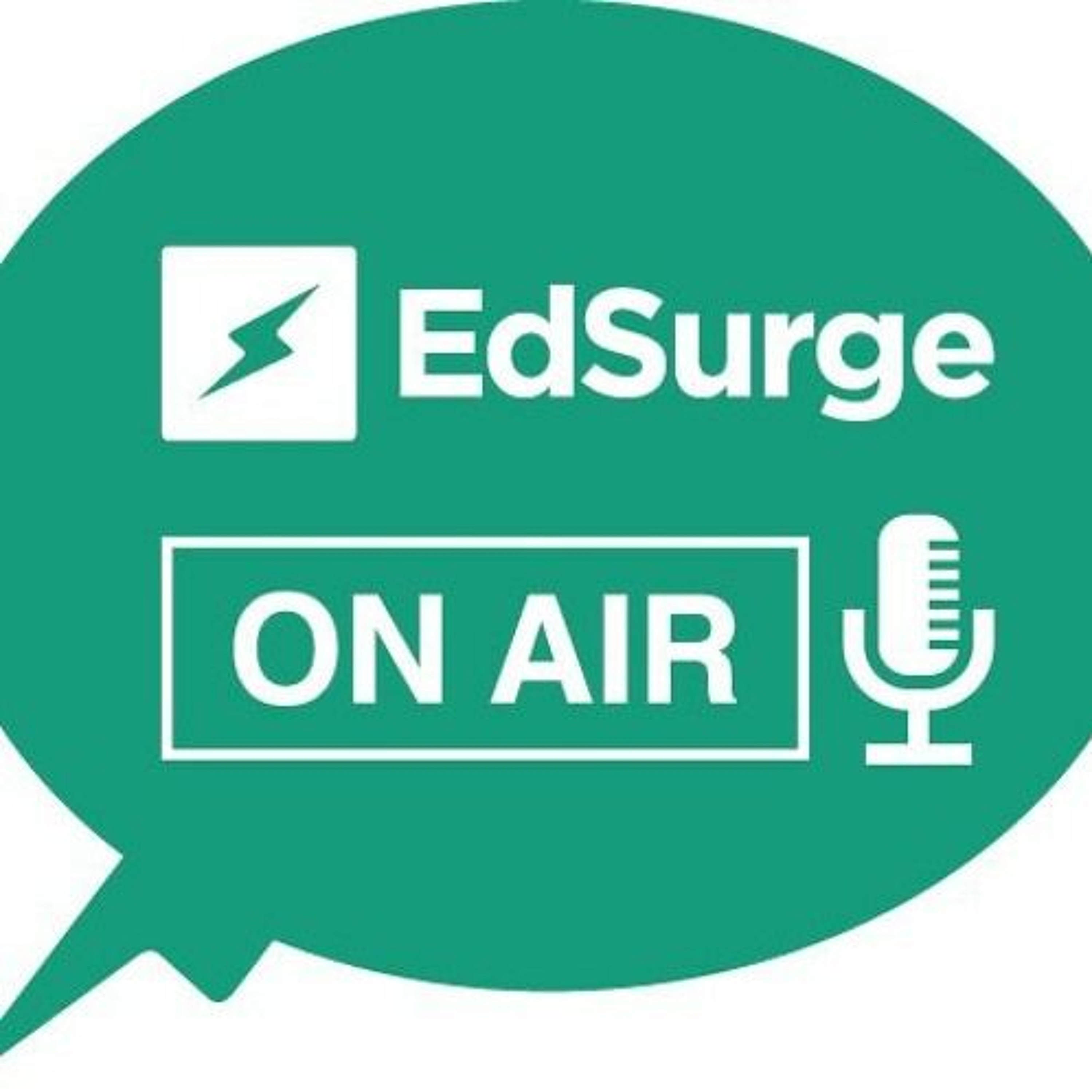
What If MOOCs Really Do Revolutionize Education? This Popular Online Professor Thinks They Will
If you’ve ever zoned out during a lecture, of if your students are prone to distraction as you click through your PowerPoint deck, that’s partly because we’re hard-wired not to focus intently for longer than ten or fifteen minutes at a time. Our bodies, after all, were evolved to master survival in nature, rather than staring at glowing bullet points on a screen.
That’s the argument made by Barbara Oakley, a professor of engineering at Oakland University, who spends a lot of time these days thinking about how people learn. And she’s taught more students than just about anyone else on the planet, as one of the instructors of one of the most popular online courses ever, which has had two million registered students over the several times it’s been offered. The title of the course, is Learning How to Learn.
EdSurge recently talked with Oakley about what she’s learned teaching all those online students. And she makes the case for why free online courses like hers—which are known as Massive Open Online Courses, or MOOCs—might still lead to a revolution in higher education, even though the hype around them has died down.
25:5525/07/2017

Girls Who Code CEO Reshma Saujani: Why An 'Hour of Code' Isn’t Enough
It’s no shock to anyone—there is a gender disparity problem in the computer science world. The computing industry’s rate of job creation in the United States may be three times that of other industries, but the number of females attaining computer science degrees is falling, as U.S. News reports: “In 1984, 37 percent of computer science majors were women, but by 2014, that number had dropped to 18 percent.”
However, Reshma Saujani doesn’t think the issues merely lie in offering girls more opportunities to learn. Rather, it’s a problem of culture and consistency. “A girl doing an ‘hour of code’ is not going to have an epiphany that is going to convert her,” she tells EdSurge.
Saujani, a former lawyer and the CEO/founder of Girls Who Code in 2012, has strong beliefs about how the political landscape will and should affect computer science education, as well as the biggest hurdles facing those hoping to adequately educate girls on coding. Luckily, EdSurge got the opportunity to sit down with her right before her closing keynote at the 2017 ISTE conference in San Antonio, Texas.
11:5119/07/2017
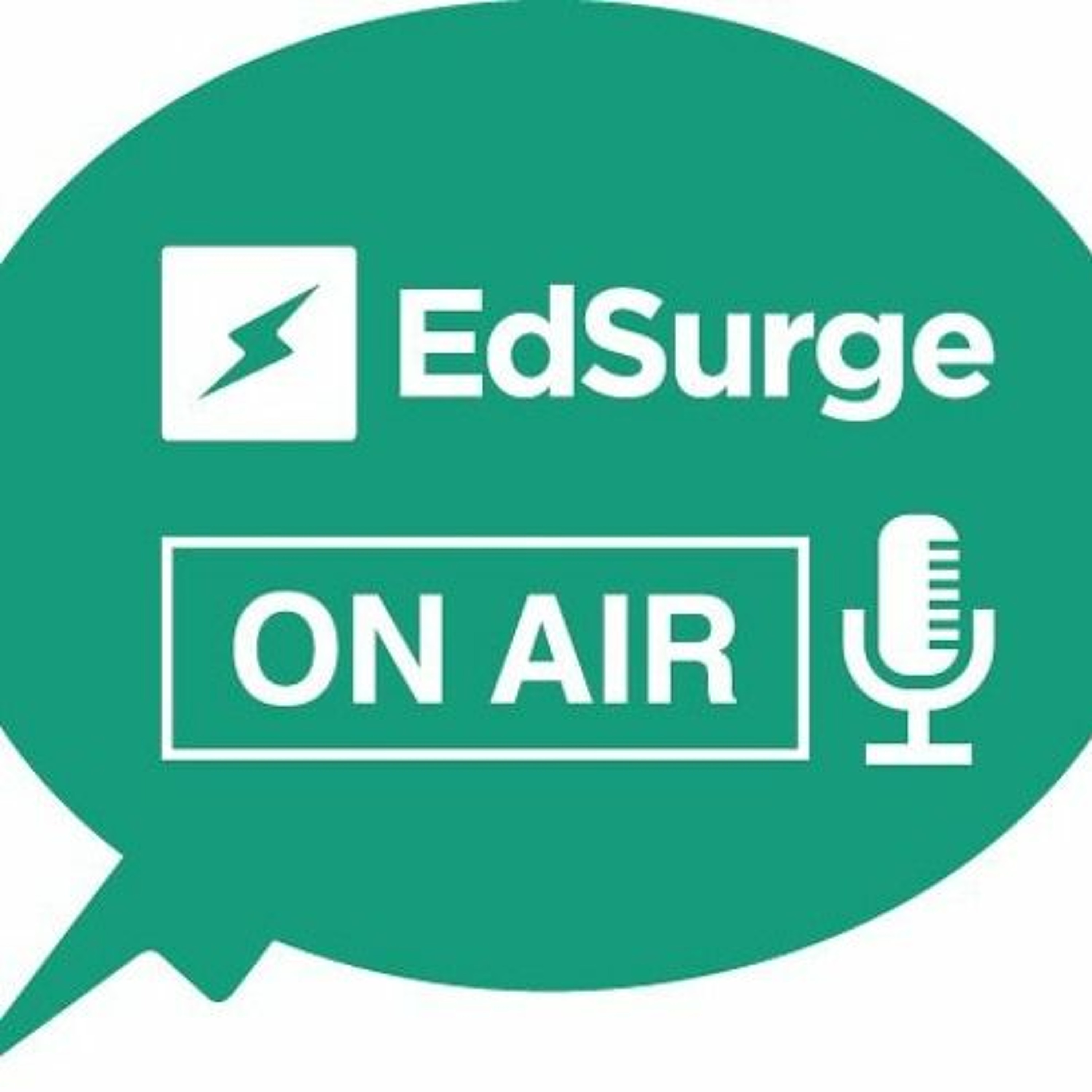
How Childhood Has Changed (And How That Impacts Education)
It’s easy to forget that notions of childhood have changed radically over the years—and not all for the better, says Steven Mintz, a history professor at the University of Texas at Austin. “Helicopter parenting” and habits around carefully guarding, protecting and scheduling kids have their downsides.
The history of the American family and childhood is an area Mintz has long studied. And he keeps that perspective in mind as he works to keep college teaching practices up to date in his other role, as the executive director of the University of Texas System’s Institute for Transformational Learning.
EdSurge sat down with Mintz a few months ago to talk about kids today, and about why he thinks higher education is going through a once-in-a-generational transformation to respond to how they’ve changed.
The conversation has been edited and condensed for clarity. We encourage you to listen to a complete version below, or on iTunes (or your favorite podcast app).
24:0711/07/2017

Tired Edtech Trends That Teachers Wish Would Retire: From the Floor of ISTE 2017
On the floor of the ISTE conference, it’s easy to meet educators and administrators from all over the country (and the world at large). You can discuss edtech implementation strategies, hear about favorite tools, and get to know those practices that teachers are excited to bring back to their students.
But while EdSurge paced the ISTE floor on June 25-28 in San Antonio, Texas, we decided to ask a slightly different question: What edtech trends, products, and buzzwords do you wish would retire—for good? From “blended learning” to digital worksheets, here are a collection of comments from ten educators about their biggest edtech pet peeves.
20:1604/07/2017

Stop Calling College Teachers ‘Professors.’ Try ‘Cognitive Coaches,’ Says Goucher President.
One problem with college teaching is that professors see themselves as, well, professing— declaring what they know and believe. That’s not how good teaching works, argues Jose Bowen, president of Goucher College.
The best teachers have more in common with fitness instructors, he argues. They motivate and guide their students to accomplish their goals.
Years ago Bowen coined the term “teaching naked,” meaning teaching without technology like PowerPoint. His latest book, “Teaching Naked Techniques: A Practical Guide to Designing Better Classes,” expands on his arguments and offers practical advice for instructors who want to rethink how they design their classes.
EdSurge recently sat down with Bowen at his office at the liberal arts college just outside of Baltimore, where he argued that improving college teaching is key to helping improve the political climate facing the country.
25:4428/06/2017





